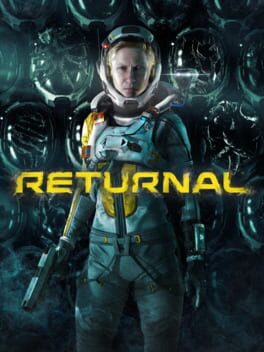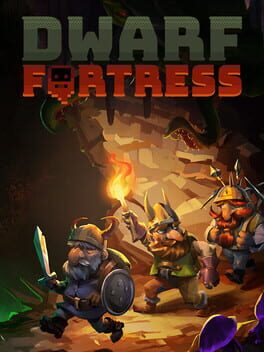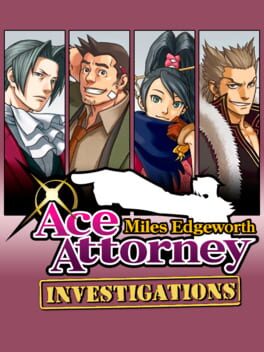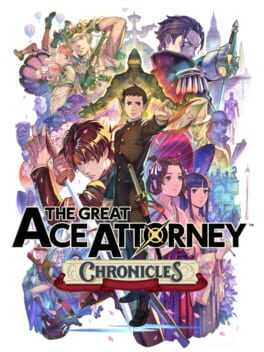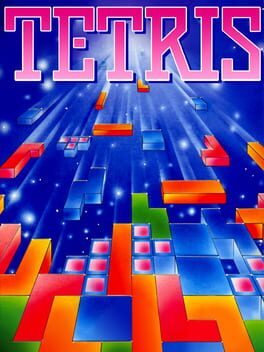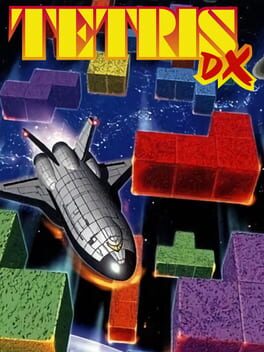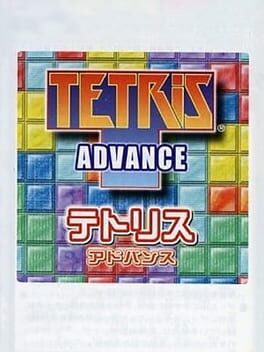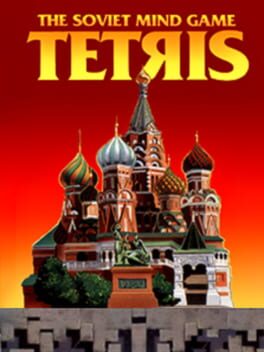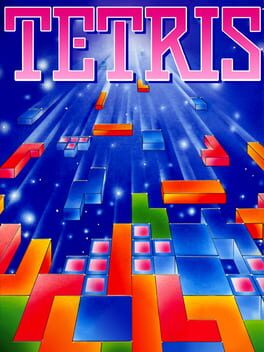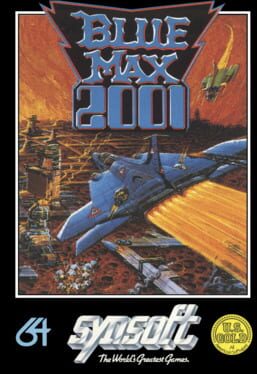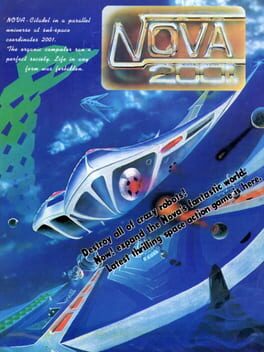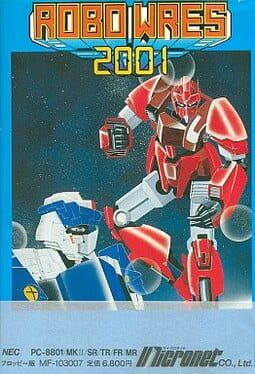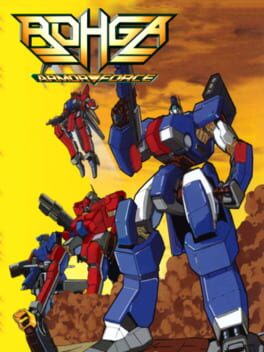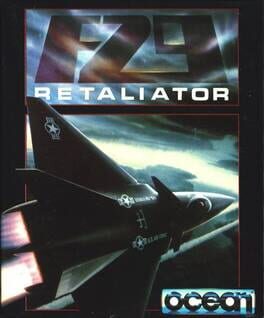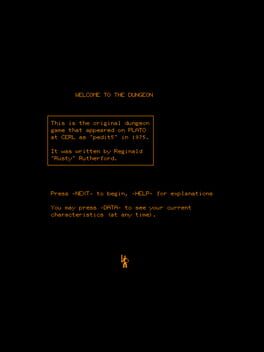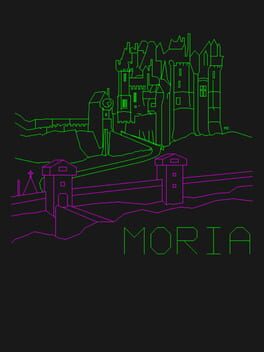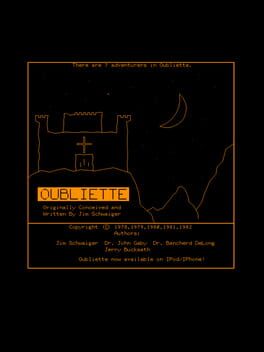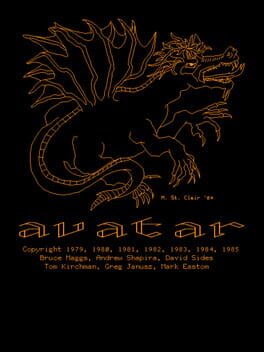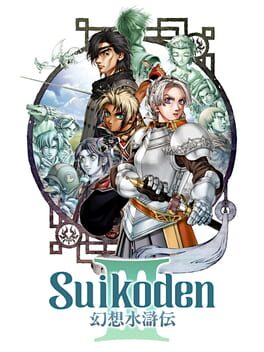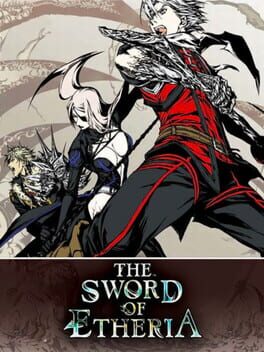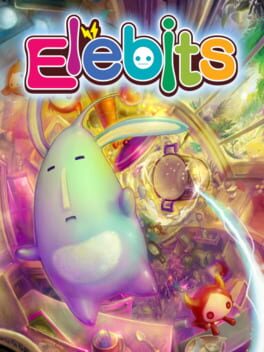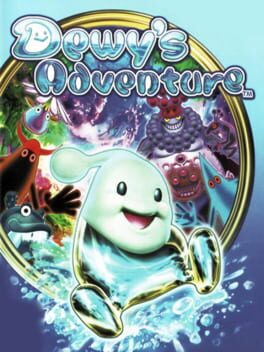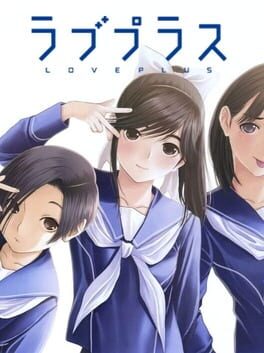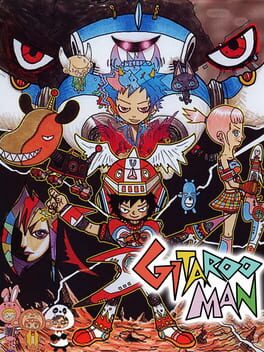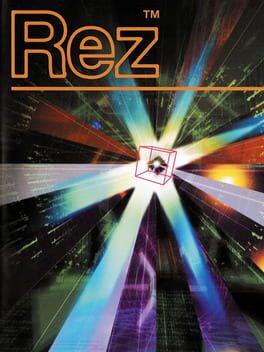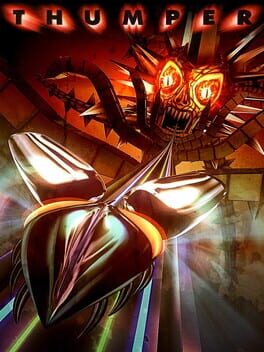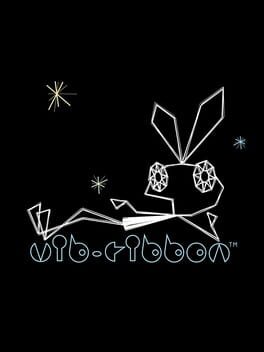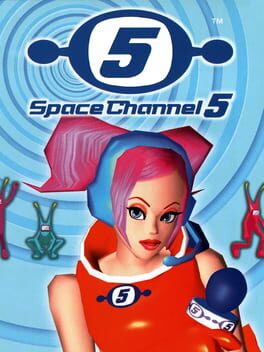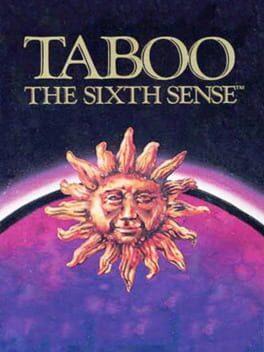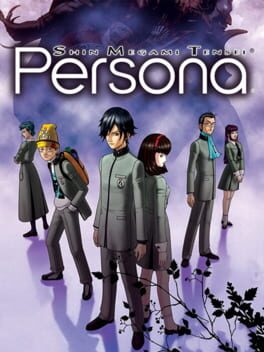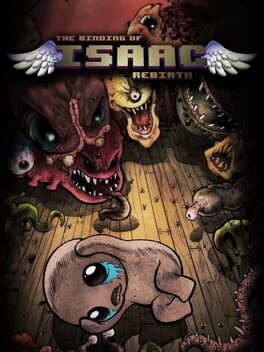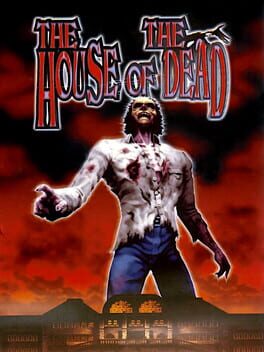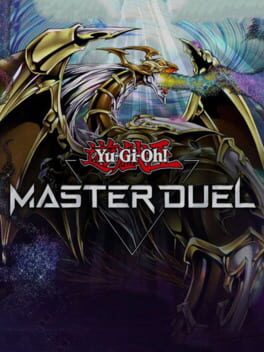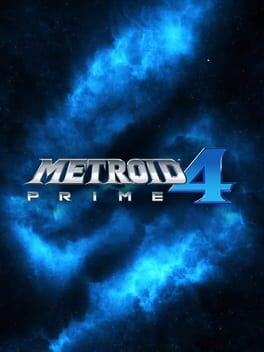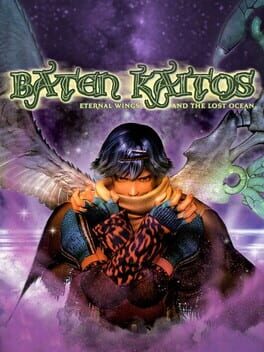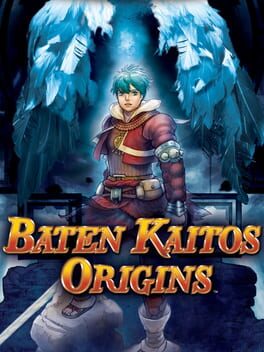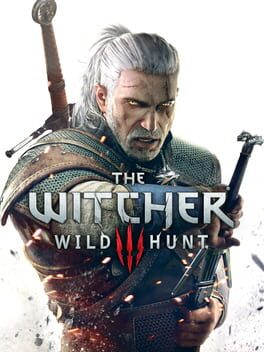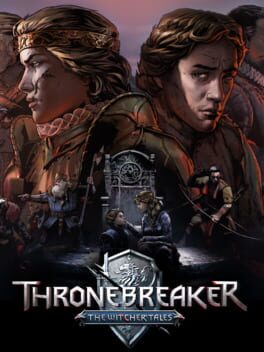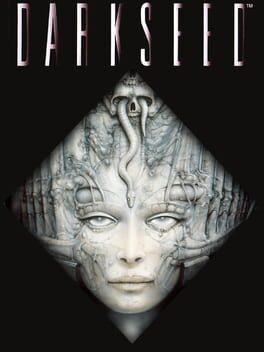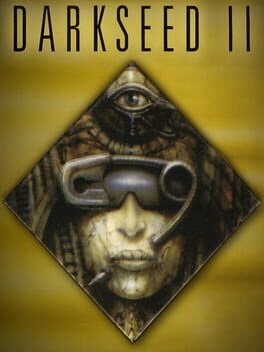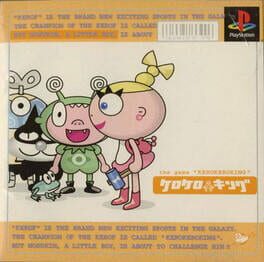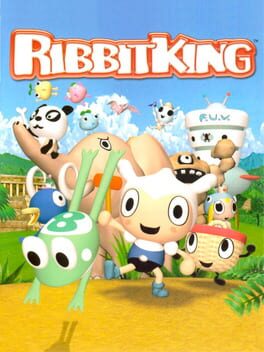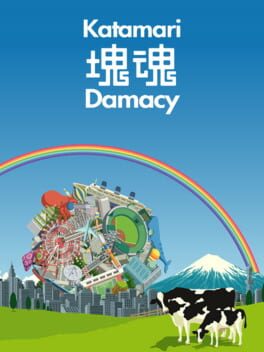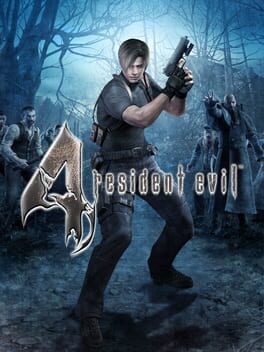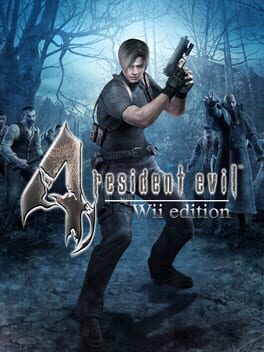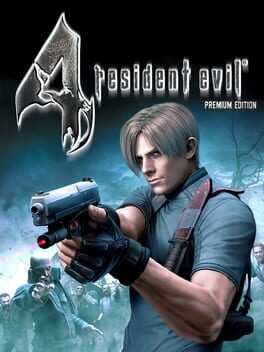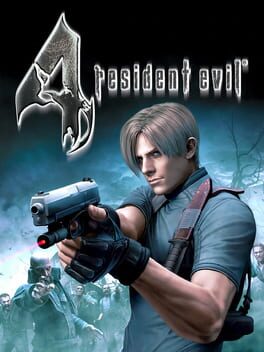318 reviews liked by LSW
Returnal
2021
Roguelikes são fundamentados em repetição. Detalhes de terminologia ignorados; seguimos. Às vezes essas repetições são absolutas, cada vida uma página em branco; outras, vamos lentamente construindo pedaços de um inteiro - um personagem, uma narrativa, um entendimento, um arsenal. Mas por que repetir? Existe algo que pode ser entendido de maneiras diferentes quando composto pelas mesmas palavras? Mantras e orações - repetidos infinitamente, um tijolo de cada vez chegando mais perto de uma iluminação.
Returnal se repete. Não muito, mas as frases são longas, um pouco além da conta. Cada ida no carrossel te alimentando um pouquinho mais sobre um mistério - ora iluminando o caminho, ora mostrando que a sombra era muito maior do que se esperava. O cerne de cada ciclo é um balé letal, onde eles propõem a dança: tudo se resume a dançar no ritmo deles, e responder da forma que pode - aniquilação absoluta do outro lado sendo o único fechar das cortinas. O mistério é vasto - por que e como? Onde e quando? Aqui e lá? Ele e eu? Cada passo incerto no desconhecido, se encontra chão, constrói uma base segura para se reconstituir - entre os ciclos de violência há trégua, e nesse espaço pode-se planejar com as poucas peças que o jogo te fornece. Por que repetir? Releituras - novos olhos em um texto inerte trazem perspectiva inédita. Água mole em pedra dura tanto bate até que fura.
Returnal se repete. Não só entre si. Pode-se dizer que este Ícaro subiu nos ombros dos gigantes - Isaac, principalmente - para alçar voo, e na subida aprendeu alguns truques próprios. Embora as entranhas não sejam nada revelador, a experiência momento a momento é absurda: Atropos tem uma voz através dos ambientes, suas paisagens - sonoras e visuais - evocam todo o duplo, triplo, múltiplo sentido que o jogo quer te provocar: curiosidade, medo, maravilha, nojo, melancolia, raiva, arrependimento. Prometeus foi buscar o fogo e trouxe também o Dualsense: em meio ao frenesi do combate, o controle pulsa vivo em suas mãos, extensão direta do tato como agente do jogo. Por que repetir? É apenas humano - academia, terapia, estudos, relacionamentos. Somos seres de rotina, e através dela construímos tudo. É de grão em grão que a galinha enche o bico.
Returnal se repete. Atropos se repete. Selene se repete. Por que? Não demora muito para o jogo deixar claro. Abandonar Helios e se jogar em direção ao desconhecido, ao perigoso, até que tudo faça sentido. Mas não é exatamente assim que funciona. Nem toda conclusão é uma conclusão ideal; nem toda jornada se conclui quando queremos, também. Queria que houvessem mais palavras neste dicionário, queria que me mostrasse mais lados de si. Não obstante os detalhes, Returnal é uma história que só pode ser contada assim: paulatina, mântrica, altos eufóricos seguidos de planejamento neurótico, um lampejo por vez.
Returnal se repete. Não muito, mas as frases são longas, um pouco além da conta. Cada ida no carrossel te alimentando um pouquinho mais sobre um mistério - ora iluminando o caminho, ora mostrando que a sombra era muito maior do que se esperava. O cerne de cada ciclo é um balé letal, onde eles propõem a dança: tudo se resume a dançar no ritmo deles, e responder da forma que pode - aniquilação absoluta do outro lado sendo o único fechar das cortinas. O mistério é vasto - por que e como? Onde e quando? Aqui e lá? Ele e eu? Cada passo incerto no desconhecido, se encontra chão, constrói uma base segura para se reconstituir - entre os ciclos de violência há trégua, e nesse espaço pode-se planejar com as poucas peças que o jogo te fornece. Por que repetir? Releituras - novos olhos em um texto inerte trazem perspectiva inédita. Água mole em pedra dura tanto bate até que fura.
Returnal se repete. Não só entre si. Pode-se dizer que este Ícaro subiu nos ombros dos gigantes - Isaac, principalmente - para alçar voo, e na subida aprendeu alguns truques próprios. Embora as entranhas não sejam nada revelador, a experiência momento a momento é absurda: Atropos tem uma voz através dos ambientes, suas paisagens - sonoras e visuais - evocam todo o duplo, triplo, múltiplo sentido que o jogo quer te provocar: curiosidade, medo, maravilha, nojo, melancolia, raiva, arrependimento. Prometeus foi buscar o fogo e trouxe também o Dualsense: em meio ao frenesi do combate, o controle pulsa vivo em suas mãos, extensão direta do tato como agente do jogo. Por que repetir? É apenas humano - academia, terapia, estudos, relacionamentos. Somos seres de rotina, e através dela construímos tudo. É de grão em grão que a galinha enche o bico.
Returnal se repete. Atropos se repete. Selene se repete. Por que? Não demora muito para o jogo deixar claro. Abandonar Helios e se jogar em direção ao desconhecido, ao perigoso, até que tudo faça sentido. Mas não é exatamente assim que funciona. Nem toda conclusão é uma conclusão ideal; nem toda jornada se conclui quando queremos, também. Queria que houvessem mais palavras neste dicionário, queria que me mostrasse mais lados de si. Não obstante os detalhes, Returnal é uma história que só pode ser contada assim: paulatina, mântrica, altos eufóricos seguidos de planejamento neurótico, um lampejo por vez.
Dwarf Fortress
2022
Leyfir að Knúsabróðir, Scribe, has created Léirmheas, a digital video game review! He offers it to the Room of Riaráiste.
[OK]
[OK]
Final Fantasy VIII
1999
I’m gonna start this off by getting right to the heart. What Final Fantasy VIII is all about, is the reconciliation between the self and its relationship with time. This relationship and its characteristics refer specifically to the changes in the self’s relation to time as historical advances are made to the interconnectivity of physical places, communication, and people as byproducts of the increasing demands of world-wide capitalist economy and its impacts on culture.
The concept of the annihilation of space by time, or time-space compression, is an idea posited by Karl Marx in 1857 that continued to be applied, articulated, and changed by writers and theorists as a global economy continued to form through modern history, which created the incentive to overcome both the spatial and communication barriers by which space between people, places, and thought had been previously manifest. These advances include things like transportation (railroads, cars, jets), communication channels (fax, radio, phone), and most recently online communication, or construction of non-physical spaces based on information transfer and delivery.
Keep in mind the fundamental striking changes to the world design of VIII from past games includes all these things that are shown to the player right from the start—trains running automatically between locations, rental cars available to the player, as well as the narrative’s emphasis on satellite, radio, and cable-based communications, and most importantly, the online forums and pages running on the school’s closed network servers.
Final Fantasy VIII’s fundamental design was actually heavily inspired by internet forums, as scenario writer Nojima recently discussed his experience with using a personal computer to search for online discussions about previous games he’d worked on for the first time, and how impacted he was to see all kinds of criticisms on his use of character death and tragedy and the “overuse of flashbacks” as a narrative device, all of which directly affected the decisions made during the narrative development of VIII. It doesn’t just stop there either, as VIII is really the first game to begin a trend in the series where the narrative is made of hints and clues at hidden information, context, and details to serve the main storyline, something directly designed to bolster online and forum discussions among players. Do you remember the datalog of FFXIII? Did you ever realize that whole thing began with VIII? The ‘tutorial’ section of the menu has sections among sections detailing not just the various unexplained aspects of the game systems, but information about characters, locations, plot events, and the history of the world that go mostly unspoken during the game, key terms with which to read the several intended playthroughs of the game and to put pieces together with others.
I wholly believe that the direct exposure to other people and places via the internet as an extension of previous historical accelerations and compressions of time and their subsequent erasure of borders and discreet identities in time and space directly informs the themes, message, and the narrative and mechanical design of Final Fantasy VIII.
“We are entering a space which is speed-space…[a] time of electronic transmission…and therefore, man is present not via his physical presence, but via programming.”
NARRATIVE 1 - VHS
I think a lot of people will agree that the narrative and plot of FFVIII has a unique flair to it. It took me some time to realize how to describe it, but I think I’ve reached something I’m satisfied with. The plot of FFVIII, from the beginning, feels compressed, with events happening of wildly ranging content, tones, fictional genres, compiled together in tight bouts of non-sequitur editing. What it really feels like, is an old, worn-out inherited VHS tape that’s seen years of use and rewriting between various films and programs, to the extent that you can no longer tell where one film ends and the next begins. Storylines and cinema modes blend together, events unpredictable in nature only loosely related to the ones immediately surrounding them dissolve with the seams between so worn out that the lack of cuts itself is jarring (note the cinematics’ consistent, heavy use of dissolves) and characters appear to change fundamental roles based not on character or plot developments but on the tape’s runtime itself, dictated by the speed of the dream, as if resembling a worn-out existential footprint of a person’s interests and entertainment dispositions over a long period of time. The plot of FFVIII grabs from ranges of Hollywood films between Star Wars to minutes of Jurassic Park to Saving Private Ryan, Aliens to hints of Harry Potter (unreleased as of ff8’s release), Titanic, etc. Each section feels iconic, but they all feel like different, unrelated works stitched together, bound by culture and speed.
What effect does living in that kind of existence have on a person? Final Fantasy VIII has large swaths of time the player can experience, if they so choose, between important plot events, where nothing important happens and time seems to feel like a paranoid stand-still, as if frozen between actions but never at rest, where players are pulled along mainly by interest in the trading card game system. But when plot events happen, they happen fast, in intense succession, one after another. Final Fantasy VIII is a story about young people, especially Squall, being consistently overwhelmed by events they have no control over, by a world that deems all the elements of discrete eras of history as totally equivalent, permitted to happen simultaneously.
Unlike a typical narrative’s sense of time where at any moment that the present takes place the threat of the unknown would come from the future, the characters of VIII are attacked from all sides, so little is their grasp on both the grand scope of time and the minuteness of its intervals. VIII is a story where enemies become mothers (your own), and not in the Luke Skywalker sense. Relationships are given unknown meanings, and then immediately dropped, recontextualized, and then decontextualized. No form of understanding about the nature of this world is stable. It is a dream where your own personal reality rewrites itself so fast and frequently as everything changes and morphs all around you.
“When we think of speed, we say it’s the means of getting from here to there fast…But I say no to this. It’s a milieu, a milieu in which we participate only indirectly through the videotape machine after recording, through information science and [programmed] systems.”
MECHANICS 1 – Deconsolidation and Assembly
The act of dealing with that world, where everything is connected to the point where nothing is any more relevant than anything else, is to acknowledge its implicit existential anxiety and death anxiety.
More than anything else, I think, the makeup of Final Fantasy VIII’s world and mechanics design is that of a consolidated, disassembled world, where everything remains clumped together in chunks, but nothing is really pre-built for the player. The content, from quests to acquirable resources are concentrated in select points along the map. Rather than spread across the map so the player is led to find the Necessary Keys ala Dragon Quest, as it were, they are in distinct points the player is meant to remember and return to should they seek those properties. Even the system of magic itself implies that magic, the most important resource of this world, is located along concentrated areas that spurt out from physical locations, or from the monsters who originate from the moon. Item drops only come from specific monsters and have very specific uses, and monsters themselves are often limited to specific continents or areas. But it isn’t just content that’s consolidated, the rules of the game themselves are. Each new Guardian Force (summon) acquisition and new type of magic has the power to fundamentally change how the game works for the player and the psychology of the battles and exploration, exactly the same as how Triple Triad’s (card game side mode) rulesets change as you travel.
You might have heard the complaint that Final Fantasy VIII is easy to break, but in truth, you cannot break Final Fantasy VIII because you cannot break something that is not yet assembled. The assembly of its elements is entirely up to the player, with what you do in the game, what you find, what you explore, how you allocate things, and what affordances you define each element with. And none of these decisions are permanent; the game can be rewritten any time and as many times as you choose.
CONTEXTUALIZATION – Putting VIII into Perspective of the Series
Put simply, the identity of Final Fantasy is that it attempts to encapsulate everything that can be said regarding a theme using both fantasy and role-playing mechanics within a single game. They are a lot like the Star Wars films in how those films cover an extremely broad and encompassing range of visual, cinematographic, and mythological elements taken from various sources and put together to form a narrative that explores narrative. Final Fantasy games are all encompassing works of the same kind; each game is both the first work and the last work in a series that explores the art of game-driven narrative.
I would like now to break down each game in the series until VIII and paint them as a specific type of Final Fantasy with regards to how each approaches its interpretation and style of roleplaying to demonstrate the path taken to get to VIII's approach.
1 Final Dungeon Fantasy
A game mainly driven by individual dungeons that require the player to explore and plan routes through several times until coming away with the most important treasure, a narrative key, that applies itself in some way to the overworld, itself a large dungeon. This form of dungeon diving heavily tests resource management and planning as well as managing encounter based risk and reward.
2 Final Campaign Fantasy
A game that serves a narrative campaign about rebellion first and foremost, and requires the player to consistently return to a specific location as they seek the resources and keys necessary to develop a resistance strong enough against an empire. Rather than resource management, the behavior of the player is heavily tracked and used to shape the growth of the characters nonlinearly which requires appropriate use of spells and weaponry to modify characters temporarily and permanently to approach the challenges.
3 Final Exploration Fantasy
A story centered around a freewheeling party exploring both a shifting world and their own shifting selves. Tasks are found on volition and approached through an economy of mechanical roles.
4 Final Theater Fantasy
A game that defines all mechanics and roles of its participants by and for narrative, and allows the player to be the discoverer and actor of their interplay.
5 Final Television Fantasy
A game about approaching challenges by not just trying different classes and mechanical roles but by combining their aspects and seeing their effects. An episodic costume narrative directed by the player with a party as cast members in on-going production.
6 Final Opera Fantasy
An extension of the fourth game's theater, developed into a full multi-character parallel storied narrative where each character is less defined by role and more by personal quirks and distance from the former games' magic, never being able to take ownership of it.
7 Final Everything Fantasy
7 is like a culmination and convergence of so many things and ideas. It feels like it contains so many settings, story genres, and pieces as an urban fantasy. From sidewalks and ceos, mythical creatures, crazed scientists and test subjects, caves of natural wonder, haunted mansions, a “princess”-like and a “knight”-like, lost magic cities, amusement parks, giant robots, kaiju, space, special soldiers, secret agents, aliens, I mean the list just goes on, and it all works because none of these things take up too much of the time and the pace is fast enough to be riveting but with deep enough character writing and psychology between the turnarounds to keep consistent interest on a main through-line.
Final fantasy VII is the fantasy of everything, contextualized by the concept of the lifestream, where all life and concepts flow through the planet in a physical, manifested way. Anything can happen because it’s part of the same stream of planetary existence, like a wave that comes and goes.
8 Final RPG Fantasy
How do you go past “everything”? What do you look toward once you’ve created a story about the concept of “everything”? The answer VIII arrives at, is to look at the container itself, the RPG wrapper that houses the content of the game. Whereas VII asked what are all the things we can put and keep in an RPG, VIII asks what is an RPG? How does an RPG present and deliver its ideas?
To play Final Fantasy VIII is to create questions and follow lines of thought. The game itself houses multiple choice tests (as the main characters are students) that help determine the salary level the player receives. Each of these tests is not only designed to test the player’s understanding of the game, but to give them ideas for things to experiment with, questions to follow up on and experiment within the game’s almost carelessly open and flexible system.
Each character is a momentary collection of spells that determine what they’re good at. Each spell a question of how to make a character either stronger or more resistant. And each potential of each spell is determined by what god-creatures you’ve pacted with or spotted and fished in each battle. But, the decisions you can make for what you want to be good at are also determined by what GFs you have found and what abilities you've invested in. For example, you might prioritize HP and junction cures to HP, but then you find that you're rarely doing limit breaks because limits are tied to low HP, and have their own kind of system for chaining limits by manipulating windows. You would be ignoring a system of the combat and never hitting your characters' true potential, not to mention having slow battles. But, then you get the spell Aura, which lets you do limits at higher HP. But you find that with that high HP, you don't really ever heal high enough to take advantage of it because your magic stat is low. And when you do heal, your max hp diminishes anyway. You have a specific idea about how HP and healing works, until you get an ability that instantly heals an ally to full without any resource limit, and suddenly you have a completely different understanding of opportunity costs, statistical uses, and how spells can be used. There's many abilities in the game that offer (or threaten) to change the way the game can or should be played, and each stat has its own little functions worth discovering.
Even the difficulty of the game is entirely dependent on how much time one spends digging into the game, with enemies leveling up with the player’s party and the speed of level-ups being on a linear scale, rather than exponential (1000 exp to level up at all times, regardless of current level), which puts a pressure on the player to keep their builds up against the speed of the game's power scale. You might think to avoid killing creatures and gaining experience and focus entirely on getting spells, which many do to "break" the game, but this prevents you from being able to draw higher level magic as your level (and magic ability) determine your capabilities with that. Without high enough levels, enemy monsters won't even have high level magic on them to take from at all, and without killing monsters and only ending battles in other ways, you'll never get the monster parts and drops to turn into either magic or new weapons, and neither will your GFs learn new abilities and stat relationships or develop summon compatibilities. Although you can bypass some of that by delving into the card game, another system of intricate and shifting rulesets, which leads me to my next point.
MECHANICS 2 - Neuroplasticity
All the (consolidated) parts of Final Fantasy VIII, although scattered and very missable, are not any of them necessary toward completing the game because the system is designed to work around missing components.
You can ignore triple triad and focus on drawing magic and making builds from monster drop items. You can make your GFs focus on summon damage and boosts over junctioned stats and play the game carefully using summons and summon items, or you might never use those items at all. You might prioritize disposable high damage items over high level magic and build characters around that.
You might have one character build defensive and manipulate them to stay in low health to get limit breaks off of them. Doing that implies that you have access to a defense boosting GF, which are missable. You can plan a party around anything given what stat junctions you have available. You might have a party that's weak or strong against various elements at random times depending on what the auto junction system chooses for you, or you might be in complete control of the elemental and status properties of everyone around you.
Even the pocket playstation peripheral, something I thought was a downside of the game as without it certain items and summons can't be obtained. But having a better understanding of the game let me realize that it's entirely in the spirit of the game since everything in the game is an optional, circumventable thing that helps you define what kind of rpg you're playing. It's not a complete, self-contained "final fantasy", I thought, if it has these things outside the game. But, it doesn't need to have it, and besides, what ambition to have a separate monocolor tiny game screen with the potential to bring game altering items into the game that you can acquire by adventuring while outside.
To add onto the chocobo pocketstation game point, what it is is a tiny little random dungeon navigator and battler with small events that can help you level up a small chocobo in the real game and grow a summon in real time, while it nets you items from all over the game, even when you wouldn't be able to get them normally. Sometimes these items can help you get lategame GFs early. But this doesn't break the difficulty curve as it would in a normal rpg, because the game is balanced not around standard difficulty but on a risk/reward system where danger is beneficial, all boons are expendable and disposable, and everything around you is on the same growth curve as you.
All this to say that, while I think Final Fantasy had been leaning toward this direction for some time with V's class change system, VI's magic learning system and VII's materia system, but VIII is the first to fully embrace a difficulty designed around broadness. Instead of a series of challenges that test you on your ability to use available resources, growth choices made, or special items and weapons found via exploration, VIII is all about improvisation and just seeing what you can do and how you can play with it. This is reinforced by both a growth structure based on impermanence and redefinability and a world and system structure of circumventable machinery, where the pleasure is in the rewiring. It's the emphasis on how, not on performing optimally but on enjoying the act and actually paying attention and recognizing the struts, rails, and artifice of the play. In that sense, the game might be the first and only truly mechanically Brechtian RPG.
NARRATIVE 2 - Characters Who Exist Between the Frames
Given the state of impermanence and redefinability of the game’s mechanical construction, in a world where everything is permitted to exist at once in one concentrated mass dilated over a stretch of bending time, characters live and breathe in the spaces between time. If timecode dictates the law of this world the way it does relationships, events, and reality, then it is between units of time that characters find their existence.
The key visual motif of this game is the fade. Locations, characters, and places in time are introduced by fading, cascading shots. It is a visual dilation between disparate moments, a morphing of person to place, the inner to outer and back again, and it is constant across this game’s narrative framing.
Yet the characters when introduced are always given these very specific, quiet moments. Beautifully rendered short, intimate cg, completely voiceless, pointmark each new character’s introduction to the story. It’s such a unique feeling watching these, like learning about somebody without hearing them say anything, an interview of gestures, small movements, and diegetic environmental sound. It’s these moments that stand out throughout the game as in the heat of narrative choice, climax, and expositions where characters are put through the wringer and make mistakes, change, remember things, forget things; characters have developments in this game so quickly sometimes or have stunning redefining moments and reevaluations that it sometimes does feel absurd, surreal, and many have criticized this style of narrative development, but it's entirely appropriate for this game’s theme and story, a story where young adult development is characterized by the existential speed of the present, the claustrophobia of the past and the future closing on you at both sides, the baggage of the parent, the realization of your own eminent death, the reconciliation or lackthereof of a society and history that feels alien and unmalleable, of time itself that seems hostile and alive. To live here is to have surrendered yourself to it, to be a participant of the self-annihilation of its very existence, so there is no self, really, to separate from the out-of-control plot spiraling across the drama of all ages, except for only those that can be captured by these tiny, seemingly trivial moments, these small things that carry so much meaning about a person. And isn’t that ultimately the way you’ll be remembered? When a person is gone and all their life is part of the lives of all the other people’s lives, we remember those small bits, right? The way they move their hair or gaze into the sky or stumble on some rocks. It’s the moments between that can breathe.
MECHANICS 3 - Bargaining with Time
Much has been said about the drawing system of Final Fantasy VIII. I stand by that it is one of the most misunderstood mechanics in all RPG history. The regurgitated complaint is that it's slow, it's a waste of time, it's repetitive, and lastly that it's a required exercise in tedium as a replacement for traditional experience based stat growth. Such complaints or that the idea that the game was unplayable before the option to speed up time in the remaster (or that it improves the game) are untrue, and can be dispelled easily with an idea that might explain the mechanic better.
Imagine if each enemy in the game had only a limited amount of spell stocks, for example, if the bats at the start of the game had just a limit of 15 fires, and perhaps the triwing miniboss had 50 fires, blizzards, and thunders each. The expectation of “grinding by drawing” would be dead, and by explicitly disallowing players the opportunity to ruin their own enjoyment of the game by abusing a mechanic for “optimal growth and spell stocking” the game would have a much better sense of natural pace. And I mean, when you think about, even with that limitation you STILL could grind endlessly and pick up as many spells as you want, because the enemies are still random encounters you can grind. So what’s the difference, why does allowing a player to get ~infinite spells from a single encounter make it any worse than allowing a player to get a limited amount of spells from an infinitely repeatable encounter? The difference is player psychology, and how players perceive the game is to be played based on pre-established conditions of the genre. I’ve never seen a player of an rpg complain that a game demands that they grind by allowing infinite enemy encounters to occur in a designated area, because it’s understood unless the player explicitly desires a statistical advantage through repetitive actions, they are not meant to walk around and battle endlessly for optimal growth and item/resource availability.
But that still leaves the question, why design the game that way, why design it so that each enemy is an endless dispenser of spells and that spell stock is the foremost determiner of character statistic ability?
To answer this, first, what is drawing spells? Why have a magic system set up like this at all? I think the main benefits of this mechanic in terms of player emotion are that:
1- It gives each individual battle the ability to permanently change, for better or worse, your character’s potential capabilities, weaknesses and strengths. In other terms, their invisible, implied ambiguous class. Of course, there are no character classes in Final Fantasy VIII, and they haven’t been in the series at this point since V, but there are still minute decisions to tool and retool every character in the game based on available resources that can instantly completely change how your characters act, fight, and interact in terms of battles. Every single battle in the game has the potential to change this, either by having the player spend lots of magic spell stocks during the fight for casting and thus losing their junctioned stat strengths, or by acquiring an unknown amount of new spells, or even discovering an unknown spell altogether that gives new potential both as an ability to cast during battle and as an ability that might redefine or change your strategies completely. One of my biggest problems with many JRPGs is there is too much inconsequential time spent in battle, and that time actually feels inconsequential. Sure, technically experience points are consequential since they can permanently change your characters for the better once you get enough, but gaining experience is always the same reward (the only variable being amount), and always in the upward direction, and is always applied the same way by the game system. Spell stocks all have different stat relationships based on the spell, which itself is a form of discovery that’s pretty fun.
2- It creates a decision-making point. In each battle, you have the option to spend a character turn being useless for the sake of acquiring resources, and doing this consecutively leaves you open for more attacks by the enemy. You cannot predict the exact quantity you’ll receive each turn, so there’s a bit of a gamble involved, and it creates a risk/reward system of staying longer or choosing not to end battles to get more out of them. Drawing is also a skill. It’s not an option available at all times; it costs a full menu slot of which there are only four available and this never changes during the game (a big change from VII’s everything-window resizing itself), and the game makes this point from the beginning by starting you off with 4 available command skills in addition to Draw.
Additionally, the outcome of a successful Draw is dependent on magic stats/junctions, so there is incentive to do things like specialize characters for drawing, have mages geared toward drawing, or even make your characters physical stats weaker so as not to end battles too quickly. There is also the fact that your character level determines Drawing success/failure, and a lot of spells have a minimum level to acquire, which also actually means if you want to take advantage of battle spell drawing you cannot keep yourself intentionally underlevel (though you don’t have to take advantage of it; there are other ways of playing the game), and that if you have a specialized draw character, you still want to keep their level up, and in this game experience is primarily determined by who gets the last hit in battle, which means you still want them to attack every once in a while…
At the same time though, Draw is still useful as a command for characters with weak magic stats. You could always cast a Drawn spell instead of stocking it, kind of excitingly using the enemy spell against themselves right away in the heat of battle, and the power of that spell isn’t determined by character magic stats since it’s not really being casted from that character. Instead spells casted this way are given random strength, which could be useful in fights where physical fighters can’t use their attacks, need to get an elemental weakness out, or do anything spur-of-the-moment.
At the same time though, there is a huge flaw with the implementation of this mechanic, and I think it’s responsible for the reason this mechanic is misunderstood as something expected to be abused to the point of “making the game boring”. And that’s that, for about half of the game, the enemies simply don’t do enough damage per turn to create a legitimate threat to the player’s risk of standing around, drawing. Because players don’t feel a risk or danger, the only real risk until enemies become stronger is the passage of time, which is where the concept of perceived intended grind comes from. The game is not difficult enough in general to necessitate wasting your time with excessive drawing anyway, yet players cannot know that when starting the game or anticipating the next challenge. To be frank, the root of this issue stems from the ATB system and Final Fantasy’s approach to enemy design at this stage in general: from VI on, FF games had battles that were more about performance, expression and a horizontal power system where you could defeat enemies in multiple ways, which would actually help define the characters and their journeys, as well as create the cinematic character-driven narrative layer to the moment-to-moment gameplay. Making the enemies too hard would limit player incentive to experiment, and would lower the potential ways to solve encounters, so lowering the minimum requirement for defeating enemies makes sense. When the ATB system gets involved, though, you get the situation where if the player doesn’t truly go for ending the fight quickly and just does the minimum physical attack, the battles can very easily stall, where nobody does much damage, and the thrill of engagement is all but gone. This unfortunate result, combined with Final Fantasy’s popularization of prioritizing lengthy/showy battle animations over quicker alternatives or text, and the fact that all battles open in completely separate scenes from the exploration scene, disorienting the player if the battle takes too long (upon which re-orientating yourself by moving around to get your bearings will likely create another battle with step-based encounters), ALL are kind of the reason 70% of post FFVII JRPGs can feel like a slog to play. But that digression aside, adding the Draw system onto that low-risk and time-(in)sensitive battle foundation makes the first half of the game not live up to the risk in the risk/reward system the game is setting up.
Later games do have this element in them actually, FFIX basically has the Draw command in the form of a Steal system. It used to be that enemies had only one item players could steal, but in IX enemies have a whole table of items with harder and rarer to steal things at the top, which are really enticing since items and equipment have lots of functions in that game, similar to the magic system of VIII. Although in both games you can forgo a turn for the risk of getting hit more for the chance of scoring something good that can permanently change or increase your abilities in the game, the difference is that in IX the things enemies hold are actually limited! Look at that!
Then, in XII, you have a somewhat different thing but still a battle risk/reward subsystem where you can fight consecutive enemies by aggroing them and increase your chances of getting items and equipments and drops the higher your enemy chain is, and the more you fight and get more enemies involved the higher the risk gets for aggroing a strong enemy or overwhelming yourself in numbers. Continuing to reason 3…
3-It’s sick as hell. I don’t know what it is, and normally I don’t even care much for battle animations and particle effects, but the Draw animation is just super cool to me, and just conceptually, the idea of extracting magic essence from enemies and using it yourself in myriad ways is dope.
And if we go back to my previous point of the lack of pressure in damage turning the main motivater of risk to time, as much as I dislike it, in a game about dealing with time, with a sense of time that’s simultaneously instantly fast and endlessly frozen, isn’t it kind of apt? The anxiety of the draw state, the gambler’s addiction of staying in place just to get more, the fact that moving forward with the game and finishing encounters is something the player has to decide and actively cause, not just passively wait for things to end, well it all kind of fits thematically, I think.
One last addendum I'm gonna add here is that the way money is made in the game is also based on time, since you get a salary based on the time spent moving around in the game. Since the salary amount is determined only partially, minimally by battling, and mostly on quizzes taken that test and encourage experimentation with the game systems, it creates another horizontally structured optional progression path.
NARRATIVE 3 - Space as Final Respite, or: The Scarcity of Quiet
With my view of this story being explicitly about teenagers coming to terms with a hostile world defined by the simultaneity of time, the climax of the story is its calmest point.
I don’t want to give away too much about it in case there are readers who haven’t experienced it. But I will say that it’s a sequence that seems to come out of nowhere, has several twists, and barely explains itself. Yet it absolutely works.
Everywhere on the surface of the world of this game, there is the feeling of restlessness. Like I said before, the story sequences are accelerations of what feel like events occurring miles apart in time, the moments between them, to me at least, feel like environments defined by a freeze-frame energy. Everything is either a calm-before-the-storm, or the fallout right after a catastrophe, and in most cases, both. At rest, there is no rest, except for in space.
That being said, the scene in space technically is neither peaceful nor calm in its context. It’s very tense. BUT, it’s the one chapter in the game where the two main characters can just exist, and live by their own volition, separate from the propellants of time. The motivating factors behind Squall and Rinoa are very pure, and in that sense, it’s a rebellion against the forms of logic that construct the space the narrative defines itself in. It’s a hug in the void, interrupted only by a dragon.
MECHANICS 4 - You Are Still Playing the Game When It’s Shut Off
Final Fantasy VIII is built for external discussions. The storytelling style being based around events and relationships hinted at, the proto FFXIII datalog, the way junctioning allows for different players to have completely different play styles and setups, the fact that the card game rules scatter around and spread in unique, random ways along the towns and areas you play it at, leading to completely different rules ecosystems across the world in each save file. But I think the most interesting parts to this fact are two things.
First, the sidequest design in this game, specifically the ones you find on the overworld, and the way they’re populated along the map feel way more “you read this on a forum or heard it from a friend” than anything in the series prior, like with the invisible monkey stuff or the lake (if you know, you know), but it has a certain flavor all its own. There’s surprisingly very few of them and they’re all sort of funky in the sense that they feel abruptly distinct and don’t make sense until you ‘get’ them. It feels very protogenic to the kinds of things that would spread in early 2000s game design and sensibilities (in my opinion).
Second, with the inclusion of money being determined by something distinctly outside of the gameplay loop (optional exams), to the point that they’re in a section of the menu labeled ‘Tutorial’, I think is the game kind of encouraging the player to engage the game outside of the game and to think on their own by burying sorts of layers within the game’s construction. I think this is the first Final Fantasy where I felt the systems of combat, exploration, and character growth were distinct among themselves within the game, and could feel where each one ended and started. It’s the first Final Fantasy where I went out of my way to hunt down specific type of enemies based on their habitats to find a specific item. It’s also the first Final Fantasy where I went out of my way to construct a specific type of weapon I read about in a magazine and where going to a store meant more than just spending the gold I had for what they had on offer.
NARRATIVE 4 - The End on Tape
Potential spoilers for this section if you have not seen the ending.
“Reflect on your...childhood…your sensation...your words...your emotions.......Time...it will not wait...no matter...how hard you hold on...it escapes you...and......."-Ultimecia’s final words
What place does mortality have in a world where everything exists at the same time; if in the Vonnegut sense, you only need to look in a certain direction to see someone gone still standing, still doing what they’ve always been doing?
I read the ending in a particular way that I’ll try to explain. Squall finds himself transmitted by some signal into a cracked endless desert. In the Baudrillardian sense, this is the desert of the real. The crossing of all time, the eradication of distance between discreteness, and the overbombardment of information and signal—the noise of their reality of life—has created in its diametric the frayed husk of an opposite reality. No sound can be heard, and no signal perceived; no truth distinguishable from a soup of signs, signifiers, and contexts, there is no context found here at all, it is the Desert.
The hero wanders alone, unable to hold on to what mattered to him most. Unable to hold on to himself. Without context, without other things to compare itself to, the self disintegrates. The land shrinks until there is nowhere left to wander, because the act of wandering itself loses context, loses meaning, loses discreteness in relation to other things.
The signal/noise dichotomy is best represented by the violent montage sequence, the meshing, cutting, liquifying, re-editing as the picture itself fails to hold on to memory, fails to filter memory, fails to understand memory. And with neither memory, context, or structured/discernable reality, death comes without life beginning, and life arrives without death completing it, intermittently and together.
And the only solution to the hero’s purgatory of time, mortality, and context, is, as completely corny and as silly as it sounds, it’s just love. It’s just what matters to people, to be held and accepted. That’s the signal. It’s a beautiful image, with the clouds parting and the flowers coming back, when the two find each other again despite all odds. Because even if this whole loop will start again, Edea will begin SeeD, will become the sorceress, time draws in on itself, the characters are divided without knowing each other, and everybody is lost and alone in a sea of anxiety and noise, and the war comes from every side of time again, this one moment will still be there, and the game is asking the player to recognize the importance of that feeling. It ends with acceptance of that feeling across time, even for Seifer, who finally feels at ease with himself without actually changing, and especially Laguna, who finally gets to express what he’s always wanted to. A lost kind of love that’s continued across generations connected by a song and unspoken feelings.
Finally the whole thing culminates in a video recording of a celebration where everyone is present. It’s almost as if this one piece of footage, this is all that is allowed to exist outside of the loop that the timeline of the game is predicated on. Unlike the other forms of information transmission and transportation the game is fixed on, I think this one final tape shows a reality where everybody is at ease, being themselves, in the moment (and the headmaster’s Robin Williams face has suddenly fully transformed into a Phillip Seymour Hoffman). It’s an immortalization of the many lives that were there, granting them separation from the other many signals, noises, contexts, and realities of present, past, and future times. It ends only when the machine does, as the battery dies, the viewpoint is switched to Rinoa’s, and Squall is allowed to exist once more, present in the moment seen to Rinoa, flying toward a Lunar exit.
A send-off to 1999 and the entire millennium before it, as RPGs, rendering technology, and fiction storytelling on the digital medium won’t ever be quite the same.
My Own Timeline
I wanna take this part and talk a bit about my relationship with this game, and with games in general, over time.
I grew up at a time when PS1 games had just fully phased out and were unavailable in stores. I never had much money as a kid so getting games was a very infrequent thing, until the next gen consoles would come out and make the previous generations games discount and I could play catch-up.
Most of my relationship with games at that time was over the internet, watching videos of others older than I explaining about games and their relationships with them. Much can and has been said about the early years of YouTube and video game discussion, the immature humor, the overstretched personas, the ridiculous rants, embarrassing skits, and how generally mean spirited a lot of it was. But when I was a kid, that's all I had to go to to learn more and engage in what was absolutely the most fascinating topic out there, video games I cannot play.
Playstation 1 games, especially, felt like they were mystic artifacts, there was always an air of magic to them. I think my very first exposure to final fantasy was the FF8 intro cutscene. I thought the quick shots in that trailer-style intro were scenes from an actual movie, I remember googling for a place to watch the full thing. Then I remember finding Midgar and images depicting FF7's industrial black city and wondering how the hell it all fit together. The boxarts were always so intriguing and cinematic, but the resolution on my screen and old images and maybe just my dumb baby head would read into them the completely wrong way. I thought FF7s box was depicting a hero with a giant sword approaching a dark castle. I thought it was amazing. I could barely see or understand gameplay screenshots and just went off of text descriptions of it, and it always sounded more interesting and out there than the limited worlds being rendered in real time on my PS2. Besides 2000's Wikipedia and fan wikis I only had YouTubers to go off of for any context about these strange things that seemed so much better than the games I was playing then.
And who else to convince me of the superiority of the past than the growing number of men on the internet reminiscing about the games of their youth? And I fell for it, I just believed older games were better than anything next gen. I like to think of this now as a kind of big brother effect I experienced. I didn't have any older siblings and was an only child for a long time, so I sometimes feel jealous when I hear of others' experiences with older siblings passing down or sharing in video game experiences. Since I had no guide in the world of games, looking back now it kind of felt like I was relying on online video creators for a kind of parasocial game-themed relationship.
By allowing those kinds of people to be my guides in childhood escapist experiences, I had unknowingly allowed myself to swallow whole-sale all kinds of things, things that were not so good, and I just believed in the opinions others had for experiences I didn't have myself, for games I never played or movies I'd never watched. Most of my experience with Final Fantasy VIII for the longest time was with The Spoony One's review series on the game. It's funny to me now looking back and seeing how completely wrong most of his points about the game are, how he misreads its design choices and intentions, and kind of just complains.
Yet I can't really bring myself to hate it. I guess part of me just grew up in that culture, much as I disapprove of it now, and when I sit down and watch something like it from that time period I still find it kind of relaxing. Just to sit down, settle in, and listen to someone take me on a personal comedic journey that edits between gameplay footage, historical context, criticisms and anecdotes, and anything else that could happen on a screen. It's crazy, even if literally all of the content within that structure is horrible, it still feels comfortable somehow just through its format, its structure. I can't come to hate the things that taught me about all the games I wouldn't have been able to wonder and dream about, learn about, and eventually bring myself to try to experience on my own, even if I reject its message and outdated grossness.
That's the internet though, isn't it? The place where the past and future exist simultaneously, all directions to be experienced all at once. The turn of the millennium, the birth of the forum, the voices turning, all things must pass and all things must come, now at the same time.
--------------
“We program a computer or a videotape machine to record a telecast in our absence, to be able to watch it the next day. Here we have a discovery: the olden space-time was an extensive space, a space where duration of time was valued. Whatever was short-lived was considered an evil-something pejorative. To last a short time was to not be present; it was negative. Today…new technologies lead us to discover the equivalent of the infinitely small in time. In previous times, we were conscious, with telescopes, of the infinite large, and with microscopes, of the infinitely small. Today, high speed machines, electronic machines, allow us to comprehend the same thing in regard to time. There is an infinitely long time which is that of history, of carbon-14, which enables us to date extremely ancient artifacts. Then, we have an infinitely short time, which is that of technology’s billionths of seconds. I think the present finds us squarely between these two times. We are living in both the extensive time of the cities of stories, of memories, or archives, or writing, and the intensive time of the new technologies. That’s the ‘program of absence’, that’s how we program our definitive absence, because we’ll never be present in that billionth of a second.”
All quotations about speed/time by Paul Virilio.
The concept of the annihilation of space by time, or time-space compression, is an idea posited by Karl Marx in 1857 that continued to be applied, articulated, and changed by writers and theorists as a global economy continued to form through modern history, which created the incentive to overcome both the spatial and communication barriers by which space between people, places, and thought had been previously manifest. These advances include things like transportation (railroads, cars, jets), communication channels (fax, radio, phone), and most recently online communication, or construction of non-physical spaces based on information transfer and delivery.
Keep in mind the fundamental striking changes to the world design of VIII from past games includes all these things that are shown to the player right from the start—trains running automatically between locations, rental cars available to the player, as well as the narrative’s emphasis on satellite, radio, and cable-based communications, and most importantly, the online forums and pages running on the school’s closed network servers.
Final Fantasy VIII’s fundamental design was actually heavily inspired by internet forums, as scenario writer Nojima recently discussed his experience with using a personal computer to search for online discussions about previous games he’d worked on for the first time, and how impacted he was to see all kinds of criticisms on his use of character death and tragedy and the “overuse of flashbacks” as a narrative device, all of which directly affected the decisions made during the narrative development of VIII. It doesn’t just stop there either, as VIII is really the first game to begin a trend in the series where the narrative is made of hints and clues at hidden information, context, and details to serve the main storyline, something directly designed to bolster online and forum discussions among players. Do you remember the datalog of FFXIII? Did you ever realize that whole thing began with VIII? The ‘tutorial’ section of the menu has sections among sections detailing not just the various unexplained aspects of the game systems, but information about characters, locations, plot events, and the history of the world that go mostly unspoken during the game, key terms with which to read the several intended playthroughs of the game and to put pieces together with others.
I wholly believe that the direct exposure to other people and places via the internet as an extension of previous historical accelerations and compressions of time and their subsequent erasure of borders and discreet identities in time and space directly informs the themes, message, and the narrative and mechanical design of Final Fantasy VIII.
“We are entering a space which is speed-space…[a] time of electronic transmission…and therefore, man is present not via his physical presence, but via programming.”
NARRATIVE 1 - VHS
I think a lot of people will agree that the narrative and plot of FFVIII has a unique flair to it. It took me some time to realize how to describe it, but I think I’ve reached something I’m satisfied with. The plot of FFVIII, from the beginning, feels compressed, with events happening of wildly ranging content, tones, fictional genres, compiled together in tight bouts of non-sequitur editing. What it really feels like, is an old, worn-out inherited VHS tape that’s seen years of use and rewriting between various films and programs, to the extent that you can no longer tell where one film ends and the next begins. Storylines and cinema modes blend together, events unpredictable in nature only loosely related to the ones immediately surrounding them dissolve with the seams between so worn out that the lack of cuts itself is jarring (note the cinematics’ consistent, heavy use of dissolves) and characters appear to change fundamental roles based not on character or plot developments but on the tape’s runtime itself, dictated by the speed of the dream, as if resembling a worn-out existential footprint of a person’s interests and entertainment dispositions over a long period of time. The plot of FFVIII grabs from ranges of Hollywood films between Star Wars to minutes of Jurassic Park to Saving Private Ryan, Aliens to hints of Harry Potter (unreleased as of ff8’s release), Titanic, etc. Each section feels iconic, but they all feel like different, unrelated works stitched together, bound by culture and speed.
What effect does living in that kind of existence have on a person? Final Fantasy VIII has large swaths of time the player can experience, if they so choose, between important plot events, where nothing important happens and time seems to feel like a paranoid stand-still, as if frozen between actions but never at rest, where players are pulled along mainly by interest in the trading card game system. But when plot events happen, they happen fast, in intense succession, one after another. Final Fantasy VIII is a story about young people, especially Squall, being consistently overwhelmed by events they have no control over, by a world that deems all the elements of discrete eras of history as totally equivalent, permitted to happen simultaneously.
Unlike a typical narrative’s sense of time where at any moment that the present takes place the threat of the unknown would come from the future, the characters of VIII are attacked from all sides, so little is their grasp on both the grand scope of time and the minuteness of its intervals. VIII is a story where enemies become mothers (your own), and not in the Luke Skywalker sense. Relationships are given unknown meanings, and then immediately dropped, recontextualized, and then decontextualized. No form of understanding about the nature of this world is stable. It is a dream where your own personal reality rewrites itself so fast and frequently as everything changes and morphs all around you.
“When we think of speed, we say it’s the means of getting from here to there fast…But I say no to this. It’s a milieu, a milieu in which we participate only indirectly through the videotape machine after recording, through information science and [programmed] systems.”
MECHANICS 1 – Deconsolidation and Assembly
The act of dealing with that world, where everything is connected to the point where nothing is any more relevant than anything else, is to acknowledge its implicit existential anxiety and death anxiety.
More than anything else, I think, the makeup of Final Fantasy VIII’s world and mechanics design is that of a consolidated, disassembled world, where everything remains clumped together in chunks, but nothing is really pre-built for the player. The content, from quests to acquirable resources are concentrated in select points along the map. Rather than spread across the map so the player is led to find the Necessary Keys ala Dragon Quest, as it were, they are in distinct points the player is meant to remember and return to should they seek those properties. Even the system of magic itself implies that magic, the most important resource of this world, is located along concentrated areas that spurt out from physical locations, or from the monsters who originate from the moon. Item drops only come from specific monsters and have very specific uses, and monsters themselves are often limited to specific continents or areas. But it isn’t just content that’s consolidated, the rules of the game themselves are. Each new Guardian Force (summon) acquisition and new type of magic has the power to fundamentally change how the game works for the player and the psychology of the battles and exploration, exactly the same as how Triple Triad’s (card game side mode) rulesets change as you travel.
You might have heard the complaint that Final Fantasy VIII is easy to break, but in truth, you cannot break Final Fantasy VIII because you cannot break something that is not yet assembled. The assembly of its elements is entirely up to the player, with what you do in the game, what you find, what you explore, how you allocate things, and what affordances you define each element with. And none of these decisions are permanent; the game can be rewritten any time and as many times as you choose.
CONTEXTUALIZATION – Putting VIII into Perspective of the Series
Put simply, the identity of Final Fantasy is that it attempts to encapsulate everything that can be said regarding a theme using both fantasy and role-playing mechanics within a single game. They are a lot like the Star Wars films in how those films cover an extremely broad and encompassing range of visual, cinematographic, and mythological elements taken from various sources and put together to form a narrative that explores narrative. Final Fantasy games are all encompassing works of the same kind; each game is both the first work and the last work in a series that explores the art of game-driven narrative.
I would like now to break down each game in the series until VIII and paint them as a specific type of Final Fantasy with regards to how each approaches its interpretation and style of roleplaying to demonstrate the path taken to get to VIII's approach.
1 Final Dungeon Fantasy
A game mainly driven by individual dungeons that require the player to explore and plan routes through several times until coming away with the most important treasure, a narrative key, that applies itself in some way to the overworld, itself a large dungeon. This form of dungeon diving heavily tests resource management and planning as well as managing encounter based risk and reward.
2 Final Campaign Fantasy
A game that serves a narrative campaign about rebellion first and foremost, and requires the player to consistently return to a specific location as they seek the resources and keys necessary to develop a resistance strong enough against an empire. Rather than resource management, the behavior of the player is heavily tracked and used to shape the growth of the characters nonlinearly which requires appropriate use of spells and weaponry to modify characters temporarily and permanently to approach the challenges.
3 Final Exploration Fantasy
A story centered around a freewheeling party exploring both a shifting world and their own shifting selves. Tasks are found on volition and approached through an economy of mechanical roles.
4 Final Theater Fantasy
A game that defines all mechanics and roles of its participants by and for narrative, and allows the player to be the discoverer and actor of their interplay.
5 Final Television Fantasy
A game about approaching challenges by not just trying different classes and mechanical roles but by combining their aspects and seeing their effects. An episodic costume narrative directed by the player with a party as cast members in on-going production.
6 Final Opera Fantasy
An extension of the fourth game's theater, developed into a full multi-character parallel storied narrative where each character is less defined by role and more by personal quirks and distance from the former games' magic, never being able to take ownership of it.
7 Final Everything Fantasy
7 is like a culmination and convergence of so many things and ideas. It feels like it contains so many settings, story genres, and pieces as an urban fantasy. From sidewalks and ceos, mythical creatures, crazed scientists and test subjects, caves of natural wonder, haunted mansions, a “princess”-like and a “knight”-like, lost magic cities, amusement parks, giant robots, kaiju, space, special soldiers, secret agents, aliens, I mean the list just goes on, and it all works because none of these things take up too much of the time and the pace is fast enough to be riveting but with deep enough character writing and psychology between the turnarounds to keep consistent interest on a main through-line.
Final fantasy VII is the fantasy of everything, contextualized by the concept of the lifestream, where all life and concepts flow through the planet in a physical, manifested way. Anything can happen because it’s part of the same stream of planetary existence, like a wave that comes and goes.
8 Final RPG Fantasy
How do you go past “everything”? What do you look toward once you’ve created a story about the concept of “everything”? The answer VIII arrives at, is to look at the container itself, the RPG wrapper that houses the content of the game. Whereas VII asked what are all the things we can put and keep in an RPG, VIII asks what is an RPG? How does an RPG present and deliver its ideas?
To play Final Fantasy VIII is to create questions and follow lines of thought. The game itself houses multiple choice tests (as the main characters are students) that help determine the salary level the player receives. Each of these tests is not only designed to test the player’s understanding of the game, but to give them ideas for things to experiment with, questions to follow up on and experiment within the game’s almost carelessly open and flexible system.
Each character is a momentary collection of spells that determine what they’re good at. Each spell a question of how to make a character either stronger or more resistant. And each potential of each spell is determined by what god-creatures you’ve pacted with or spotted and fished in each battle. But, the decisions you can make for what you want to be good at are also determined by what GFs you have found and what abilities you've invested in. For example, you might prioritize HP and junction cures to HP, but then you find that you're rarely doing limit breaks because limits are tied to low HP, and have their own kind of system for chaining limits by manipulating windows. You would be ignoring a system of the combat and never hitting your characters' true potential, not to mention having slow battles. But, then you get the spell Aura, which lets you do limits at higher HP. But you find that with that high HP, you don't really ever heal high enough to take advantage of it because your magic stat is low. And when you do heal, your max hp diminishes anyway. You have a specific idea about how HP and healing works, until you get an ability that instantly heals an ally to full without any resource limit, and suddenly you have a completely different understanding of opportunity costs, statistical uses, and how spells can be used. There's many abilities in the game that offer (or threaten) to change the way the game can or should be played, and each stat has its own little functions worth discovering.
Even the difficulty of the game is entirely dependent on how much time one spends digging into the game, with enemies leveling up with the player’s party and the speed of level-ups being on a linear scale, rather than exponential (1000 exp to level up at all times, regardless of current level), which puts a pressure on the player to keep their builds up against the speed of the game's power scale. You might think to avoid killing creatures and gaining experience and focus entirely on getting spells, which many do to "break" the game, but this prevents you from being able to draw higher level magic as your level (and magic ability) determine your capabilities with that. Without high enough levels, enemy monsters won't even have high level magic on them to take from at all, and without killing monsters and only ending battles in other ways, you'll never get the monster parts and drops to turn into either magic or new weapons, and neither will your GFs learn new abilities and stat relationships or develop summon compatibilities. Although you can bypass some of that by delving into the card game, another system of intricate and shifting rulesets, which leads me to my next point.
MECHANICS 2 - Neuroplasticity
All the (consolidated) parts of Final Fantasy VIII, although scattered and very missable, are not any of them necessary toward completing the game because the system is designed to work around missing components.
You can ignore triple triad and focus on drawing magic and making builds from monster drop items. You can make your GFs focus on summon damage and boosts over junctioned stats and play the game carefully using summons and summon items, or you might never use those items at all. You might prioritize disposable high damage items over high level magic and build characters around that.
You might have one character build defensive and manipulate them to stay in low health to get limit breaks off of them. Doing that implies that you have access to a defense boosting GF, which are missable. You can plan a party around anything given what stat junctions you have available. You might have a party that's weak or strong against various elements at random times depending on what the auto junction system chooses for you, or you might be in complete control of the elemental and status properties of everyone around you.
Even the pocket playstation peripheral, something I thought was a downside of the game as without it certain items and summons can't be obtained. But having a better understanding of the game let me realize that it's entirely in the spirit of the game since everything in the game is an optional, circumventable thing that helps you define what kind of rpg you're playing. It's not a complete, self-contained "final fantasy", I thought, if it has these things outside the game. But, it doesn't need to have it, and besides, what ambition to have a separate monocolor tiny game screen with the potential to bring game altering items into the game that you can acquire by adventuring while outside.
To add onto the chocobo pocketstation game point, what it is is a tiny little random dungeon navigator and battler with small events that can help you level up a small chocobo in the real game and grow a summon in real time, while it nets you items from all over the game, even when you wouldn't be able to get them normally. Sometimes these items can help you get lategame GFs early. But this doesn't break the difficulty curve as it would in a normal rpg, because the game is balanced not around standard difficulty but on a risk/reward system where danger is beneficial, all boons are expendable and disposable, and everything around you is on the same growth curve as you.
All this to say that, while I think Final Fantasy had been leaning toward this direction for some time with V's class change system, VI's magic learning system and VII's materia system, but VIII is the first to fully embrace a difficulty designed around broadness. Instead of a series of challenges that test you on your ability to use available resources, growth choices made, or special items and weapons found via exploration, VIII is all about improvisation and just seeing what you can do and how you can play with it. This is reinforced by both a growth structure based on impermanence and redefinability and a world and system structure of circumventable machinery, where the pleasure is in the rewiring. It's the emphasis on how, not on performing optimally but on enjoying the act and actually paying attention and recognizing the struts, rails, and artifice of the play. In that sense, the game might be the first and only truly mechanically Brechtian RPG.
NARRATIVE 2 - Characters Who Exist Between the Frames
Given the state of impermanence and redefinability of the game’s mechanical construction, in a world where everything is permitted to exist at once in one concentrated mass dilated over a stretch of bending time, characters live and breathe in the spaces between time. If timecode dictates the law of this world the way it does relationships, events, and reality, then it is between units of time that characters find their existence.
The key visual motif of this game is the fade. Locations, characters, and places in time are introduced by fading, cascading shots. It is a visual dilation between disparate moments, a morphing of person to place, the inner to outer and back again, and it is constant across this game’s narrative framing.
Yet the characters when introduced are always given these very specific, quiet moments. Beautifully rendered short, intimate cg, completely voiceless, pointmark each new character’s introduction to the story. It’s such a unique feeling watching these, like learning about somebody without hearing them say anything, an interview of gestures, small movements, and diegetic environmental sound. It’s these moments that stand out throughout the game as in the heat of narrative choice, climax, and expositions where characters are put through the wringer and make mistakes, change, remember things, forget things; characters have developments in this game so quickly sometimes or have stunning redefining moments and reevaluations that it sometimes does feel absurd, surreal, and many have criticized this style of narrative development, but it's entirely appropriate for this game’s theme and story, a story where young adult development is characterized by the existential speed of the present, the claustrophobia of the past and the future closing on you at both sides, the baggage of the parent, the realization of your own eminent death, the reconciliation or lackthereof of a society and history that feels alien and unmalleable, of time itself that seems hostile and alive. To live here is to have surrendered yourself to it, to be a participant of the self-annihilation of its very existence, so there is no self, really, to separate from the out-of-control plot spiraling across the drama of all ages, except for only those that can be captured by these tiny, seemingly trivial moments, these small things that carry so much meaning about a person. And isn’t that ultimately the way you’ll be remembered? When a person is gone and all their life is part of the lives of all the other people’s lives, we remember those small bits, right? The way they move their hair or gaze into the sky or stumble on some rocks. It’s the moments between that can breathe.
MECHANICS 3 - Bargaining with Time
Much has been said about the drawing system of Final Fantasy VIII. I stand by that it is one of the most misunderstood mechanics in all RPG history. The regurgitated complaint is that it's slow, it's a waste of time, it's repetitive, and lastly that it's a required exercise in tedium as a replacement for traditional experience based stat growth. Such complaints or that the idea that the game was unplayable before the option to speed up time in the remaster (or that it improves the game) are untrue, and can be dispelled easily with an idea that might explain the mechanic better.
Imagine if each enemy in the game had only a limited amount of spell stocks, for example, if the bats at the start of the game had just a limit of 15 fires, and perhaps the triwing miniboss had 50 fires, blizzards, and thunders each. The expectation of “grinding by drawing” would be dead, and by explicitly disallowing players the opportunity to ruin their own enjoyment of the game by abusing a mechanic for “optimal growth and spell stocking” the game would have a much better sense of natural pace. And I mean, when you think about, even with that limitation you STILL could grind endlessly and pick up as many spells as you want, because the enemies are still random encounters you can grind. So what’s the difference, why does allowing a player to get ~infinite spells from a single encounter make it any worse than allowing a player to get a limited amount of spells from an infinitely repeatable encounter? The difference is player psychology, and how players perceive the game is to be played based on pre-established conditions of the genre. I’ve never seen a player of an rpg complain that a game demands that they grind by allowing infinite enemy encounters to occur in a designated area, because it’s understood unless the player explicitly desires a statistical advantage through repetitive actions, they are not meant to walk around and battle endlessly for optimal growth and item/resource availability.
But that still leaves the question, why design the game that way, why design it so that each enemy is an endless dispenser of spells and that spell stock is the foremost determiner of character statistic ability?
To answer this, first, what is drawing spells? Why have a magic system set up like this at all? I think the main benefits of this mechanic in terms of player emotion are that:
1- It gives each individual battle the ability to permanently change, for better or worse, your character’s potential capabilities, weaknesses and strengths. In other terms, their invisible, implied ambiguous class. Of course, there are no character classes in Final Fantasy VIII, and they haven’t been in the series at this point since V, but there are still minute decisions to tool and retool every character in the game based on available resources that can instantly completely change how your characters act, fight, and interact in terms of battles. Every single battle in the game has the potential to change this, either by having the player spend lots of magic spell stocks during the fight for casting and thus losing their junctioned stat strengths, or by acquiring an unknown amount of new spells, or even discovering an unknown spell altogether that gives new potential both as an ability to cast during battle and as an ability that might redefine or change your strategies completely. One of my biggest problems with many JRPGs is there is too much inconsequential time spent in battle, and that time actually feels inconsequential. Sure, technically experience points are consequential since they can permanently change your characters for the better once you get enough, but gaining experience is always the same reward (the only variable being amount), and always in the upward direction, and is always applied the same way by the game system. Spell stocks all have different stat relationships based on the spell, which itself is a form of discovery that’s pretty fun.
2- It creates a decision-making point. In each battle, you have the option to spend a character turn being useless for the sake of acquiring resources, and doing this consecutively leaves you open for more attacks by the enemy. You cannot predict the exact quantity you’ll receive each turn, so there’s a bit of a gamble involved, and it creates a risk/reward system of staying longer or choosing not to end battles to get more out of them. Drawing is also a skill. It’s not an option available at all times; it costs a full menu slot of which there are only four available and this never changes during the game (a big change from VII’s everything-window resizing itself), and the game makes this point from the beginning by starting you off with 4 available command skills in addition to Draw.
Additionally, the outcome of a successful Draw is dependent on magic stats/junctions, so there is incentive to do things like specialize characters for drawing, have mages geared toward drawing, or even make your characters physical stats weaker so as not to end battles too quickly. There is also the fact that your character level determines Drawing success/failure, and a lot of spells have a minimum level to acquire, which also actually means if you want to take advantage of battle spell drawing you cannot keep yourself intentionally underlevel (though you don’t have to take advantage of it; there are other ways of playing the game), and that if you have a specialized draw character, you still want to keep their level up, and in this game experience is primarily determined by who gets the last hit in battle, which means you still want them to attack every once in a while…
At the same time though, Draw is still useful as a command for characters with weak magic stats. You could always cast a Drawn spell instead of stocking it, kind of excitingly using the enemy spell against themselves right away in the heat of battle, and the power of that spell isn’t determined by character magic stats since it’s not really being casted from that character. Instead spells casted this way are given random strength, which could be useful in fights where physical fighters can’t use their attacks, need to get an elemental weakness out, or do anything spur-of-the-moment.
At the same time though, there is a huge flaw with the implementation of this mechanic, and I think it’s responsible for the reason this mechanic is misunderstood as something expected to be abused to the point of “making the game boring”. And that’s that, for about half of the game, the enemies simply don’t do enough damage per turn to create a legitimate threat to the player’s risk of standing around, drawing. Because players don’t feel a risk or danger, the only real risk until enemies become stronger is the passage of time, which is where the concept of perceived intended grind comes from. The game is not difficult enough in general to necessitate wasting your time with excessive drawing anyway, yet players cannot know that when starting the game or anticipating the next challenge. To be frank, the root of this issue stems from the ATB system and Final Fantasy’s approach to enemy design at this stage in general: from VI on, FF games had battles that were more about performance, expression and a horizontal power system where you could defeat enemies in multiple ways, which would actually help define the characters and their journeys, as well as create the cinematic character-driven narrative layer to the moment-to-moment gameplay. Making the enemies too hard would limit player incentive to experiment, and would lower the potential ways to solve encounters, so lowering the minimum requirement for defeating enemies makes sense. When the ATB system gets involved, though, you get the situation where if the player doesn’t truly go for ending the fight quickly and just does the minimum physical attack, the battles can very easily stall, where nobody does much damage, and the thrill of engagement is all but gone. This unfortunate result, combined with Final Fantasy’s popularization of prioritizing lengthy/showy battle animations over quicker alternatives or text, and the fact that all battles open in completely separate scenes from the exploration scene, disorienting the player if the battle takes too long (upon which re-orientating yourself by moving around to get your bearings will likely create another battle with step-based encounters), ALL are kind of the reason 70% of post FFVII JRPGs can feel like a slog to play. But that digression aside, adding the Draw system onto that low-risk and time-(in)sensitive battle foundation makes the first half of the game not live up to the risk in the risk/reward system the game is setting up.
Later games do have this element in them actually, FFIX basically has the Draw command in the form of a Steal system. It used to be that enemies had only one item players could steal, but in IX enemies have a whole table of items with harder and rarer to steal things at the top, which are really enticing since items and equipment have lots of functions in that game, similar to the magic system of VIII. Although in both games you can forgo a turn for the risk of getting hit more for the chance of scoring something good that can permanently change or increase your abilities in the game, the difference is that in IX the things enemies hold are actually limited! Look at that!
Then, in XII, you have a somewhat different thing but still a battle risk/reward subsystem where you can fight consecutive enemies by aggroing them and increase your chances of getting items and equipments and drops the higher your enemy chain is, and the more you fight and get more enemies involved the higher the risk gets for aggroing a strong enemy or overwhelming yourself in numbers. Continuing to reason 3…
3-It’s sick as hell. I don’t know what it is, and normally I don’t even care much for battle animations and particle effects, but the Draw animation is just super cool to me, and just conceptually, the idea of extracting magic essence from enemies and using it yourself in myriad ways is dope.
And if we go back to my previous point of the lack of pressure in damage turning the main motivater of risk to time, as much as I dislike it, in a game about dealing with time, with a sense of time that’s simultaneously instantly fast and endlessly frozen, isn’t it kind of apt? The anxiety of the draw state, the gambler’s addiction of staying in place just to get more, the fact that moving forward with the game and finishing encounters is something the player has to decide and actively cause, not just passively wait for things to end, well it all kind of fits thematically, I think.
One last addendum I'm gonna add here is that the way money is made in the game is also based on time, since you get a salary based on the time spent moving around in the game. Since the salary amount is determined only partially, minimally by battling, and mostly on quizzes taken that test and encourage experimentation with the game systems, it creates another horizontally structured optional progression path.
NARRATIVE 3 - Space as Final Respite, or: The Scarcity of Quiet
With my view of this story being explicitly about teenagers coming to terms with a hostile world defined by the simultaneity of time, the climax of the story is its calmest point.
I don’t want to give away too much about it in case there are readers who haven’t experienced it. But I will say that it’s a sequence that seems to come out of nowhere, has several twists, and barely explains itself. Yet it absolutely works.
Everywhere on the surface of the world of this game, there is the feeling of restlessness. Like I said before, the story sequences are accelerations of what feel like events occurring miles apart in time, the moments between them, to me at least, feel like environments defined by a freeze-frame energy. Everything is either a calm-before-the-storm, or the fallout right after a catastrophe, and in most cases, both. At rest, there is no rest, except for in space.
That being said, the scene in space technically is neither peaceful nor calm in its context. It’s very tense. BUT, it’s the one chapter in the game where the two main characters can just exist, and live by their own volition, separate from the propellants of time. The motivating factors behind Squall and Rinoa are very pure, and in that sense, it’s a rebellion against the forms of logic that construct the space the narrative defines itself in. It’s a hug in the void, interrupted only by a dragon.
MECHANICS 4 - You Are Still Playing the Game When It’s Shut Off
Final Fantasy VIII is built for external discussions. The storytelling style being based around events and relationships hinted at, the proto FFXIII datalog, the way junctioning allows for different players to have completely different play styles and setups, the fact that the card game rules scatter around and spread in unique, random ways along the towns and areas you play it at, leading to completely different rules ecosystems across the world in each save file. But I think the most interesting parts to this fact are two things.
First, the sidequest design in this game, specifically the ones you find on the overworld, and the way they’re populated along the map feel way more “you read this on a forum or heard it from a friend” than anything in the series prior, like with the invisible monkey stuff or the lake (if you know, you know), but it has a certain flavor all its own. There’s surprisingly very few of them and they’re all sort of funky in the sense that they feel abruptly distinct and don’t make sense until you ‘get’ them. It feels very protogenic to the kinds of things that would spread in early 2000s game design and sensibilities (in my opinion).
Second, with the inclusion of money being determined by something distinctly outside of the gameplay loop (optional exams), to the point that they’re in a section of the menu labeled ‘Tutorial’, I think is the game kind of encouraging the player to engage the game outside of the game and to think on their own by burying sorts of layers within the game’s construction. I think this is the first Final Fantasy where I felt the systems of combat, exploration, and character growth were distinct among themselves within the game, and could feel where each one ended and started. It’s the first Final Fantasy where I went out of my way to hunt down specific type of enemies based on their habitats to find a specific item. It’s also the first Final Fantasy where I went out of my way to construct a specific type of weapon I read about in a magazine and where going to a store meant more than just spending the gold I had for what they had on offer.
NARRATIVE 4 - The End on Tape
Potential spoilers for this section if you have not seen the ending.
“Reflect on your...childhood…your sensation...your words...your emotions.......Time...it will not wait...no matter...how hard you hold on...it escapes you...and......."-Ultimecia’s final words
What place does mortality have in a world where everything exists at the same time; if in the Vonnegut sense, you only need to look in a certain direction to see someone gone still standing, still doing what they’ve always been doing?
I read the ending in a particular way that I’ll try to explain. Squall finds himself transmitted by some signal into a cracked endless desert. In the Baudrillardian sense, this is the desert of the real. The crossing of all time, the eradication of distance between discreteness, and the overbombardment of information and signal—the noise of their reality of life—has created in its diametric the frayed husk of an opposite reality. No sound can be heard, and no signal perceived; no truth distinguishable from a soup of signs, signifiers, and contexts, there is no context found here at all, it is the Desert.
The hero wanders alone, unable to hold on to what mattered to him most. Unable to hold on to himself. Without context, without other things to compare itself to, the self disintegrates. The land shrinks until there is nowhere left to wander, because the act of wandering itself loses context, loses meaning, loses discreteness in relation to other things.
The signal/noise dichotomy is best represented by the violent montage sequence, the meshing, cutting, liquifying, re-editing as the picture itself fails to hold on to memory, fails to filter memory, fails to understand memory. And with neither memory, context, or structured/discernable reality, death comes without life beginning, and life arrives without death completing it, intermittently and together.
And the only solution to the hero’s purgatory of time, mortality, and context, is, as completely corny and as silly as it sounds, it’s just love. It’s just what matters to people, to be held and accepted. That’s the signal. It’s a beautiful image, with the clouds parting and the flowers coming back, when the two find each other again despite all odds. Because even if this whole loop will start again, Edea will begin SeeD, will become the sorceress, time draws in on itself, the characters are divided without knowing each other, and everybody is lost and alone in a sea of anxiety and noise, and the war comes from every side of time again, this one moment will still be there, and the game is asking the player to recognize the importance of that feeling. It ends with acceptance of that feeling across time, even for Seifer, who finally feels at ease with himself without actually changing, and especially Laguna, who finally gets to express what he’s always wanted to. A lost kind of love that’s continued across generations connected by a song and unspoken feelings.
Finally the whole thing culminates in a video recording of a celebration where everyone is present. It’s almost as if this one piece of footage, this is all that is allowed to exist outside of the loop that the timeline of the game is predicated on. Unlike the other forms of information transmission and transportation the game is fixed on, I think this one final tape shows a reality where everybody is at ease, being themselves, in the moment (and the headmaster’s Robin Williams face has suddenly fully transformed into a Phillip Seymour Hoffman). It’s an immortalization of the many lives that were there, granting them separation from the other many signals, noises, contexts, and realities of present, past, and future times. It ends only when the machine does, as the battery dies, the viewpoint is switched to Rinoa’s, and Squall is allowed to exist once more, present in the moment seen to Rinoa, flying toward a Lunar exit.
A send-off to 1999 and the entire millennium before it, as RPGs, rendering technology, and fiction storytelling on the digital medium won’t ever be quite the same.
My Own Timeline
I wanna take this part and talk a bit about my relationship with this game, and with games in general, over time.
I grew up at a time when PS1 games had just fully phased out and were unavailable in stores. I never had much money as a kid so getting games was a very infrequent thing, until the next gen consoles would come out and make the previous generations games discount and I could play catch-up.
Most of my relationship with games at that time was over the internet, watching videos of others older than I explaining about games and their relationships with them. Much can and has been said about the early years of YouTube and video game discussion, the immature humor, the overstretched personas, the ridiculous rants, embarrassing skits, and how generally mean spirited a lot of it was. But when I was a kid, that's all I had to go to to learn more and engage in what was absolutely the most fascinating topic out there, video games I cannot play.
Playstation 1 games, especially, felt like they were mystic artifacts, there was always an air of magic to them. I think my very first exposure to final fantasy was the FF8 intro cutscene. I thought the quick shots in that trailer-style intro were scenes from an actual movie, I remember googling for a place to watch the full thing. Then I remember finding Midgar and images depicting FF7's industrial black city and wondering how the hell it all fit together. The boxarts were always so intriguing and cinematic, but the resolution on my screen and old images and maybe just my dumb baby head would read into them the completely wrong way. I thought FF7s box was depicting a hero with a giant sword approaching a dark castle. I thought it was amazing. I could barely see or understand gameplay screenshots and just went off of text descriptions of it, and it always sounded more interesting and out there than the limited worlds being rendered in real time on my PS2. Besides 2000's Wikipedia and fan wikis I only had YouTubers to go off of for any context about these strange things that seemed so much better than the games I was playing then.
And who else to convince me of the superiority of the past than the growing number of men on the internet reminiscing about the games of their youth? And I fell for it, I just believed older games were better than anything next gen. I like to think of this now as a kind of big brother effect I experienced. I didn't have any older siblings and was an only child for a long time, so I sometimes feel jealous when I hear of others' experiences with older siblings passing down or sharing in video game experiences. Since I had no guide in the world of games, looking back now it kind of felt like I was relying on online video creators for a kind of parasocial game-themed relationship.
By allowing those kinds of people to be my guides in childhood escapist experiences, I had unknowingly allowed myself to swallow whole-sale all kinds of things, things that were not so good, and I just believed in the opinions others had for experiences I didn't have myself, for games I never played or movies I'd never watched. Most of my experience with Final Fantasy VIII for the longest time was with The Spoony One's review series on the game. It's funny to me now looking back and seeing how completely wrong most of his points about the game are, how he misreads its design choices and intentions, and kind of just complains.
Yet I can't really bring myself to hate it. I guess part of me just grew up in that culture, much as I disapprove of it now, and when I sit down and watch something like it from that time period I still find it kind of relaxing. Just to sit down, settle in, and listen to someone take me on a personal comedic journey that edits between gameplay footage, historical context, criticisms and anecdotes, and anything else that could happen on a screen. It's crazy, even if literally all of the content within that structure is horrible, it still feels comfortable somehow just through its format, its structure. I can't come to hate the things that taught me about all the games I wouldn't have been able to wonder and dream about, learn about, and eventually bring myself to try to experience on my own, even if I reject its message and outdated grossness.
That's the internet though, isn't it? The place where the past and future exist simultaneously, all directions to be experienced all at once. The turn of the millennium, the birth of the forum, the voices turning, all things must pass and all things must come, now at the same time.
--------------
“We program a computer or a videotape machine to record a telecast in our absence, to be able to watch it the next day. Here we have a discovery: the olden space-time was an extensive space, a space where duration of time was valued. Whatever was short-lived was considered an evil-something pejorative. To last a short time was to not be present; it was negative. Today…new technologies lead us to discover the equivalent of the infinitely small in time. In previous times, we were conscious, with telescopes, of the infinite large, and with microscopes, of the infinitely small. Today, high speed machines, electronic machines, allow us to comprehend the same thing in regard to time. There is an infinitely long time which is that of history, of carbon-14, which enables us to date extremely ancient artifacts. Then, we have an infinitely short time, which is that of technology’s billionths of seconds. I think the present finds us squarely between these two times. We are living in both the extensive time of the cities of stories, of memories, or archives, or writing, and the intensive time of the new technologies. That’s the ‘program of absence’, that’s how we program our definitive absence, because we’ll never be present in that billionth of a second.”
All quotations about speed/time by Paul Virilio.
Pentiment
2022
"Terra Roxa de Sangue: A Guerra de Porecatu" (Blood-Purpled Soil: The Porecatu War) by Joaquim Carvalho da Silva, is a historical-fiction novel detailing the real-life tensions and fights between squatters, land grabbers and farmers over supposedly-devolved lands in the state of Paraná, some 80 years ago. That land is today the small town of Porecatu, Brazil, (population 10k and falling) where I grew up.
I first heard of the book (and the banger sentence "blood-purpled soil") as an early teen, from my history teacher. This was an interesting point in my development as a person, not only did I learn that there was some war in the founding of my town, but I learned that, yeah, places don't just come into being, they have reasons to be here. I had experienced my first real interaction with history, not the worldly type that explains the big picture, but the local one, the one that surrounds my personal life. I was living on grounds where blood was spilled, how would that change things for me?
Surprisingly, nothing at all. I asked authority figures (older relatives) and they didn't knew much, they knew there was some fighting and that some of the families involved were still in the town. But that was it. 70 years is a long time, and big things can be lost in the smallest places, it seemed.
I promised myself to read that book one day, never did, and just went on living.
That spilled blood became a hazy memory, a one-liner to vaguely explain why things were that way at home, but nothing real in any meaningful way. Turns out I hadn't interacted with history at all, what is the point of knowing events but not people? Of knowing titles and dates but not seeing a single picture of the dead names in the gravestones? History really is "big things get lost", and we can only hope it's not too late when someone tries to find them.
Josh Sawyer's Pentiment brought me back here. Under promises of a fun Medieval Whodunnit, I found a sensitive, emotional, human story about the effects of history in the personal pains and hardships we're expected to go through, how we write it and are written by it.
Inviting us to visit a small town for two-or-so generations, we are first asked to meet and love the inhabitants of Kiersau, then we're asked to go through horrible things with them, and finally, we're asked to tell their history, as best we can. The last act of Pentiment (and where the game really begins) is what elevates it to something special that will be talked about forever. After giving you blood to spill, it finds an even more stressfull task: trying to faithfully represent the histories of a place, and all the people in it.
Writing history is straightening a whirlwind, it's an abstract thing based on real, material events, but it's the collected lives of all of us, all the joy and pain and love and hate and births and deaths and lost hopes and dreams achieved, all of it, how could it not be hard to do? It's arguably the hardest thing to do.
Pentiment's last masterstroke is living for the future. A story truly obsessed with the past, with what happened and how it shaped people in the present, can only be meaningful if it understands that there's more coming, forever. By just going through the bits of life, you're writing history, consequences bleed consequences until the end of humanity.
People will always keep going, they have to, come peace or war, so it's important that they try to remember who kept going before them, in the most truthful and open way possible. Remembering things before us is a powerful thing, it can be used as means of control, but when left to be itself, with honesty and vulnerability, it can have the role it was always intended to have, which is saying that "despite all things, maybe you're going to be fine". If things were better then, there's hope of going back to how they were, if they're better now, then it is possible to improve things, you can have hope.
And it does this softly and sensitively, with the feeling of say, a young kid leaving their small town to try and go into the big world, with all the anxiousness and excitement that brings.
I have found that book (and some others detailing the early years of my town), and will now go through them. I think it's the least I can do for all the people who have lived here. It might not change much in me, but they deserve to be remembered nonetheless. Someone has to remember them.
Thanks for reading all this mush.
I first heard of the book (and the banger sentence "blood-purpled soil") as an early teen, from my history teacher. This was an interesting point in my development as a person, not only did I learn that there was some war in the founding of my town, but I learned that, yeah, places don't just come into being, they have reasons to be here. I had experienced my first real interaction with history, not the worldly type that explains the big picture, but the local one, the one that surrounds my personal life. I was living on grounds where blood was spilled, how would that change things for me?
Surprisingly, nothing at all. I asked authority figures (older relatives) and they didn't knew much, they knew there was some fighting and that some of the families involved were still in the town. But that was it. 70 years is a long time, and big things can be lost in the smallest places, it seemed.
I promised myself to read that book one day, never did, and just went on living.
That spilled blood became a hazy memory, a one-liner to vaguely explain why things were that way at home, but nothing real in any meaningful way. Turns out I hadn't interacted with history at all, what is the point of knowing events but not people? Of knowing titles and dates but not seeing a single picture of the dead names in the gravestones? History really is "big things get lost", and we can only hope it's not too late when someone tries to find them.
Josh Sawyer's Pentiment brought me back here. Under promises of a fun Medieval Whodunnit, I found a sensitive, emotional, human story about the effects of history in the personal pains and hardships we're expected to go through, how we write it and are written by it.
Inviting us to visit a small town for two-or-so generations, we are first asked to meet and love the inhabitants of Kiersau, then we're asked to go through horrible things with them, and finally, we're asked to tell their history, as best we can. The last act of Pentiment (and where the game really begins) is what elevates it to something special that will be talked about forever. After giving you blood to spill, it finds an even more stressfull task: trying to faithfully represent the histories of a place, and all the people in it.
Writing history is straightening a whirlwind, it's an abstract thing based on real, material events, but it's the collected lives of all of us, all the joy and pain and love and hate and births and deaths and lost hopes and dreams achieved, all of it, how could it not be hard to do? It's arguably the hardest thing to do.
Pentiment's last masterstroke is living for the future. A story truly obsessed with the past, with what happened and how it shaped people in the present, can only be meaningful if it understands that there's more coming, forever. By just going through the bits of life, you're writing history, consequences bleed consequences until the end of humanity.
People will always keep going, they have to, come peace or war, so it's important that they try to remember who kept going before them, in the most truthful and open way possible. Remembering things before us is a powerful thing, it can be used as means of control, but when left to be itself, with honesty and vulnerability, it can have the role it was always intended to have, which is saying that "despite all things, maybe you're going to be fine". If things were better then, there's hope of going back to how they were, if they're better now, then it is possible to improve things, you can have hope.
And it does this softly and sensitively, with the feeling of say, a young kid leaving their small town to try and go into the big world, with all the anxiousness and excitement that brings.
I have found that book (and some others detailing the early years of my town), and will now go through them. I think it's the least I can do for all the people who have lived here. It might not change much in me, but they deserve to be remembered nonetheless. Someone has to remember them.
Thanks for reading all this mush.
I had planned to properly review this, but I ended up having so much to say and a lot of ideas for how to convey those thoughts visually that I'd rather turn those thoughts into a more formal video essay. Still, given that it's the site's shared enthusiasm for the game that got me to sit down and play it after The Silver Case kind of knocked me for six with how exhausting it was to play, I just want it on the record that this game fucking slaps.
Running pedometer-measured circles around almost every other self-professed absurdist satire of the medium, Flower, Sun, and Rain is a genuinely hilarious, supremely confident piece that is so good and so ahead of its time that it kind of makes me look less fondly on a lot of games that clearly followed in its wake. It's got more going on than just insular commentary on the medium, but one of my major takeaways was just how much more accomplished and nuanced FSR is in this regard than much of its siblings. In taking video games apart, reducing them to their most fundamental elements, laying bare their sheer, unbridled, artifice, FSR doesn't bring video games down, it shows us why we love them in the first place. Spellbinding.
Running pedometer-measured circles around almost every other self-professed absurdist satire of the medium, Flower, Sun, and Rain is a genuinely hilarious, supremely confident piece that is so good and so ahead of its time that it kind of makes me look less fondly on a lot of games that clearly followed in its wake. It's got more going on than just insular commentary on the medium, but one of my major takeaways was just how much more accomplished and nuanced FSR is in this regard than much of its siblings. In taking video games apart, reducing them to their most fundamental elements, laying bare their sheer, unbridled, artifice, FSR doesn't bring video games down, it shows us why we love them in the first place. Spellbinding.
Pentiment
2022
Pentiment absolutely floored me; what a fantastic experience. As someone with a huge interest in art history, the amount of research and careful planning that must have went into this project is insane. It's as educational as it is enthralling.
Set during the 16th century at the dawn of The Enlightenment, it's no mistake that Obsidian wanted to illustrate parallels between this era and our own. To say any more about the plot other than it being a "historical murder mystery" could spoil the experience. The way dialogue is presented through different fonts is an inspired choice which helps to indicate a character's social class or simply how our protagonist perceives them. The lack of voice acting may be a deal-breaker for some, but when you consider the size of the dev team, the number of unique NPCs, and the amount of branching paths based on the choices you make, that would be an incredibly tall order. And it's the ramifications of said choices that made this narrative feel so impactful; begging you to come back for more and see what you missed in future playthroughs. That first in-game day is admittedly a little slow but it is meant to establish the status quo in the village of Tassing before pulling the rug out from under you; of which it does several times. Once I hit that second day I was hooked until the very end.
If it wasn't for Game Pass it's possible I never even would've tried a game like this, so I'm once again extremely grateful for the service. Microsoft may not be churning out the big AAA exclusives like Sony, but I will gladly take experimental passion projects like this in the interim. Even if you find it isn't for you, which is possible because it's clearly very niche, there's still no harm in giving it a try. It's not the kind of game that'll blow up on social media or Twitch; it's a very methodical and often peaceful experience that's less of an RPG and leans more towards a visual novel.
Hats off to Josh Sawyer and his team at Obsidian; I cannot wait to see what they have in store for us next.
Set during the 16th century at the dawn of The Enlightenment, it's no mistake that Obsidian wanted to illustrate parallels between this era and our own. To say any more about the plot other than it being a "historical murder mystery" could spoil the experience. The way dialogue is presented through different fonts is an inspired choice which helps to indicate a character's social class or simply how our protagonist perceives them. The lack of voice acting may be a deal-breaker for some, but when you consider the size of the dev team, the number of unique NPCs, and the amount of branching paths based on the choices you make, that would be an incredibly tall order. And it's the ramifications of said choices that made this narrative feel so impactful; begging you to come back for more and see what you missed in future playthroughs. That first in-game day is admittedly a little slow but it is meant to establish the status quo in the village of Tassing before pulling the rug out from under you; of which it does several times. Once I hit that second day I was hooked until the very end.
If it wasn't for Game Pass it's possible I never even would've tried a game like this, so I'm once again extremely grateful for the service. Microsoft may not be churning out the big AAA exclusives like Sony, but I will gladly take experimental passion projects like this in the interim. Even if you find it isn't for you, which is possible because it's clearly very niche, there's still no harm in giving it a try. It's not the kind of game that'll blow up on social media or Twitch; it's a very methodical and often peaceful experience that's less of an RPG and leans more towards a visual novel.
Hats off to Josh Sawyer and his team at Obsidian; I cannot wait to see what they have in store for us next.
Singlehandedly the worst set of writing I've read so far this year.
I couldn't get past the first two cases, the writing was so utterly awful and the case logic and characters so hamstrung boring, with it wasting your time more than any other VN I can think of at the current moment. Not to mention the self fellating it does every hour for either fanservice or weak attempts at characterization.
Put it in the fucking bin and read the summary if you want to play AAI2.
I couldn't get past the first two cases, the writing was so utterly awful and the case logic and characters so hamstrung boring, with it wasting your time more than any other VN I can think of at the current moment. Not to mention the self fellating it does every hour for either fanservice or weak attempts at characterization.
Put it in the fucking bin and read the summary if you want to play AAI2.
A lot of the investigation sections seem to drag on a little too long and unfortunately a lot of the opponents' rebuttals are some form of "bUt ThAt'S jUsT a ThEoRy, AcTuAlLy AlL oF yOuR eViDeNcE iS CiRcUmStAnTiAl", but when this game's twists get revealed, that's when the game goes full throttle and does not let up. It also helps that most of the lovable characters from the original trilogy are back in some form, and most of the new characters are quite entertaining in their own right. All in all, it's a good game with a bit of filler; all the great parts of an Ace Attorney game are there, just need to reduce some of the needless rambling and meandering.
Xenogears
1998
This review contains spoilers
Didn't actually replay but after reading some reviews/analyses of this I felt like I had to talk about how people who write about this game focus far, far too much on the game's relationship and allusions to Lacan, Jung, Freud, and Gnosticism; something that is understandable given that these connections are the most obvious and flashy within the context of the narrative but isn't conducive to more expansive discussion about what is, in my humble opinion, the greatest narrative work in the history of the medium.
Now I do not believe that this game necessarily has anything new or meaningful to say when it comes to Lacan, Jung, Freud, and Gnosticism, but it doesn't matter because the narrative is not about those things in the first place, nor does it give pretense to commenting on those subjects; in the same way that Evangelion doesn't really have anything meaningful to say about Christianity or the Kabbalah, but instead uses the associated imagery and symbology to accentuate the collapsing psychological state of its protagonists, Xenogears uses such subjects in a similar manner but to serve a story less about killing God and the literal fracturing of a human psyche into separate personalities and more of a requiem for all the people whose lives have been crushed by oppressive systems whose breadth and scope was beyond their comprehension, and about the tragedy of the passage of time, of the struggle of two souls to find happiness in a world where the people that control it no longer believe happiness is possible, and because of this they bring the world to near-oblivion. Yet it is also about how only through the progression of time can the path to actually destroying those systems be found.
In this, there's something to be said for how Xenogears' politics manifest within the narrative; the most obvious real-life parallel people come to when talking about story's antagonists is between the nation of Solaris and Nazi Germany, but an even more cogent comparison could be made between Solaris and the American Empire. Upon entering Solaris, Fei is confronted by a clean, almost sterile, consumerist environment that, to an outsider, would look utopian, and this façade is emphasized by Yasunori Mitsuda's bouncy, light-hearted musical theme accompanying it. Of course this "utopia" is built atop the back of an abused labor class forced to live in purely functional, beehive-like housing (it should be noted that subtlety is a fake idea), at the mercy of police robots and under constant surveillance. And it's important that we're presented with the plight of Solaris' labor force before we are shown the façade itself, because upon entering the musical theme immediately takes on an ironic quality, and we implicitly understand the ignorance at the heart of Solaris' middle class before we've talked to a single NPC.
Going deeper, the Solarian middle class concerns itself solely with maintaining their status, having no knowledge of the havoc their nation wrecks on the surface and passively reap the rewards of its deeds. The Ethos exists to pacify the surface's general populace into being unaware of their oppression while funneling resources and funds to Solaris. Miang effectively MK-Ultra's Elly into almost blowing up the Yggdrasil. A tenant of Ramsus' backstory is how originally he advocated for reform within Solaris' political system before becoming subsumed by it, something all too common in our current political era. The entire conflict between Solaris and Shevat could be compared to the conflict between America and any socialist country (and I believe there is some dialogue from Shevat NPC's that emphasizes this comparison but I failed to write it down). And of course it's telling that Bart's decision upon taking control of Aveh is to abolish the monarchy and essentially establish a people's republic after overthrowing the Solaris-funded puppet government headed by Shakhan. The comparisons abound and I'm surprised more people haven't touched on these elements, and I think it's important that besides possibly Final Fantasy Tactics I can't recall a game from this era where a lot of its world-building is so centered around exploring labor and class structure.
I believe there's more to be said regarding the tragedy of Fei and Elly's backstories and how it relates to its ideas on the passage of time, ideas even hinted at in the game's excised theme "Stars of Tears." The section in Disk 2 where Fei regains his memories as Elly's plea for him to keep living echoes through time is the most singularly moving sequence I've yet encountered in a video game, the moment that blows the medium wide-open in its potential for conveying narratives, and this will have to transition into why exactly Disk 2 is as brilliant as it is, but that may all have to wait for yet another write-up after I've gathered my thoughts a bit more. Needless to say I think the focus on the extremely obvious allusive elements in critical writing on this game is disappointing considering just how much there is to unpack regarding its story.
Now I do not believe that this game necessarily has anything new or meaningful to say when it comes to Lacan, Jung, Freud, and Gnosticism, but it doesn't matter because the narrative is not about those things in the first place, nor does it give pretense to commenting on those subjects; in the same way that Evangelion doesn't really have anything meaningful to say about Christianity or the Kabbalah, but instead uses the associated imagery and symbology to accentuate the collapsing psychological state of its protagonists, Xenogears uses such subjects in a similar manner but to serve a story less about killing God and the literal fracturing of a human psyche into separate personalities and more of a requiem for all the people whose lives have been crushed by oppressive systems whose breadth and scope was beyond their comprehension, and about the tragedy of the passage of time, of the struggle of two souls to find happiness in a world where the people that control it no longer believe happiness is possible, and because of this they bring the world to near-oblivion. Yet it is also about how only through the progression of time can the path to actually destroying those systems be found.
In this, there's something to be said for how Xenogears' politics manifest within the narrative; the most obvious real-life parallel people come to when talking about story's antagonists is between the nation of Solaris and Nazi Germany, but an even more cogent comparison could be made between Solaris and the American Empire. Upon entering Solaris, Fei is confronted by a clean, almost sterile, consumerist environment that, to an outsider, would look utopian, and this façade is emphasized by Yasunori Mitsuda's bouncy, light-hearted musical theme accompanying it. Of course this "utopia" is built atop the back of an abused labor class forced to live in purely functional, beehive-like housing (it should be noted that subtlety is a fake idea), at the mercy of police robots and under constant surveillance. And it's important that we're presented with the plight of Solaris' labor force before we are shown the façade itself, because upon entering the musical theme immediately takes on an ironic quality, and we implicitly understand the ignorance at the heart of Solaris' middle class before we've talked to a single NPC.
Going deeper, the Solarian middle class concerns itself solely with maintaining their status, having no knowledge of the havoc their nation wrecks on the surface and passively reap the rewards of its deeds. The Ethos exists to pacify the surface's general populace into being unaware of their oppression while funneling resources and funds to Solaris. Miang effectively MK-Ultra's Elly into almost blowing up the Yggdrasil. A tenant of Ramsus' backstory is how originally he advocated for reform within Solaris' political system before becoming subsumed by it, something all too common in our current political era. The entire conflict between Solaris and Shevat could be compared to the conflict between America and any socialist country (and I believe there is some dialogue from Shevat NPC's that emphasizes this comparison but I failed to write it down). And of course it's telling that Bart's decision upon taking control of Aveh is to abolish the monarchy and essentially establish a people's republic after overthrowing the Solaris-funded puppet government headed by Shakhan. The comparisons abound and I'm surprised more people haven't touched on these elements, and I think it's important that besides possibly Final Fantasy Tactics I can't recall a game from this era where a lot of its world-building is so centered around exploring labor and class structure.
I believe there's more to be said regarding the tragedy of Fei and Elly's backstories and how it relates to its ideas on the passage of time, ideas even hinted at in the game's excised theme "Stars of Tears." The section in Disk 2 where Fei regains his memories as Elly's plea for him to keep living echoes through time is the most singularly moving sequence I've yet encountered in a video game, the moment that blows the medium wide-open in its potential for conveying narratives, and this will have to transition into why exactly Disk 2 is as brilliant as it is, but that may all have to wait for yet another write-up after I've gathered my thoughts a bit more. Needless to say I think the focus on the extremely obvious allusive elements in critical writing on this game is disappointing considering just how much there is to unpack regarding its story.
A masterful tour de force of a duology. They really are meant to be packaged together, adding and building up on the themes of each other and the franchise as a whole. The games really play on the expectations of the franchise for incredible twists and turns, great characters beats, and compelling narrative angles. Ryunosuke and Susato might be my favorite protagonists of the franchise, with the supporting cast demonstrating fascinating depth and character beneath first impressions.
There's a few flaws, of course. You can really tell that the second game was under stricter budget restrictions and the pacing is often a little odd as a result. There's simply no time to show how a character relationship has drastically changed between cases after a bad first impression. And sometimes its a little unclear if an anti-authority story beat is intentional or accidental.
But even then, I can't find myself docking points. The entire game soars into a delightful package. Capcom put forth a quiz asking people why they were buying GAA and one of the options was "Shu Takumi writing." And rightly so! There's a direction and intent with his games that the modern mainline games lack. You can feel the passion he has for justice and the characters and more. I would love for him to make more Ace Attorney, but I would also love for him to just... make anything! Everything he touches just works. Even when it starts to get silly or a little too soap opera, I accept it because it feels real coming from him somehow. Its a genuine triumph.
There's a few flaws, of course. You can really tell that the second game was under stricter budget restrictions and the pacing is often a little odd as a result. There's simply no time to show how a character relationship has drastically changed between cases after a bad first impression. And sometimes its a little unclear if an anti-authority story beat is intentional or accidental.
But even then, I can't find myself docking points. The entire game soars into a delightful package. Capcom put forth a quiz asking people why they were buying GAA and one of the options was "Shu Takumi writing." And rightly so! There's a direction and intent with his games that the modern mainline games lack. You can feel the passion he has for justice and the characters and more. I would love for him to make more Ace Attorney, but I would also love for him to just... make anything! Everything he touches just works. Even when it starts to get silly or a little too soap opera, I accept it because it feels real coming from him somehow. Its a genuine triumph.
54 lists liked by LSW
by letshugbro |
19 Games
by dirty_score |
104 Games
by alessio |
556 Games
by Schizo |
30 Games
by Gliscor |
11 Games
by PZT |
150 Games
by FallenGrace |
50 Games
by Detchibe |
110 Games
by letshugbro |
23 Games
